Our submission to the EC 2025 Rule of Law report
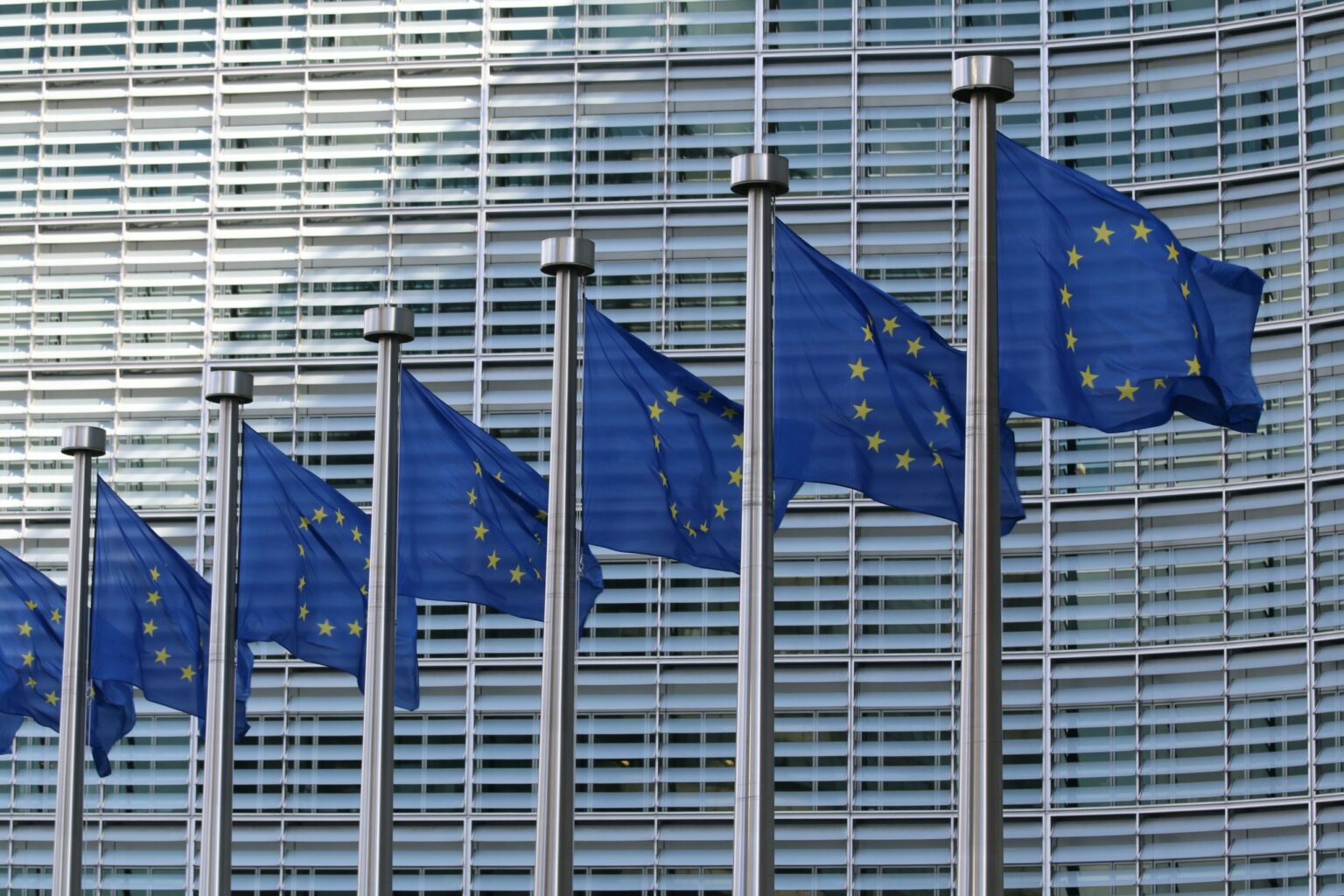
After a year of elections across the EU, threats to democracy and the rule of law are growing both in Europe and globally. Our submission highlights more clearly than ever the connection between these threats and the instrumentalisation of LGBTI people.
Disinformation, hate speech, and discriminatory political discourse have surged in many countries, directly impacting the lives of LGBTI people. At the same time, violence and restrictive legislation against LGBTI individuals are increasing, undermining the rule of law.
The Frontline: LGBTI activism: Courage to seek new strategies
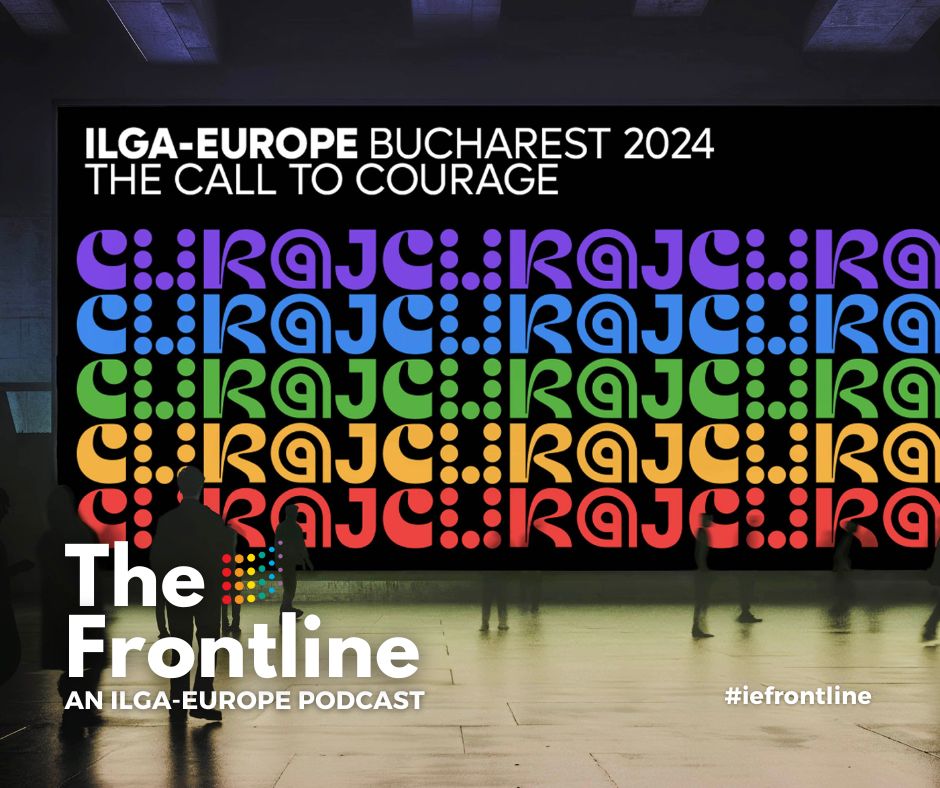
This summer in Bulgaria, as two new anti-LGBTI laws were fast-tracked in advance of forthcoming elections, a cross movement effort came together to try and stop it.
With rising levels of backlash and political scapegoating, how do LGBTI organisations relate to the greater struggle for democracy, freedom and equality? How do we avoid playing into political division in our quest for success? And in a world where there are no easy wins, what does that success look like?
For our panel on finding the courage to seek new strategies in current political contexts, ILGA-Europe’s Advocacy Director, Katrin Hugendubel is joined by Irena Moozova, Deputy Director General responsible for the International Dimension of Justice Policies, Rule of Law, and Equality in the European Commission, Béatrice Fresko-Rolfo, General Rapporteur for LGBTI rights at PACE in the Council of Europe, Denitsa Lyubenova, lawyer from the LGBTI organisation Deystvie in Bulgaria, and Magda Rakita from Fundacja Interakcja in Poland.
Interview with Denitsa Lyubenova: Bulgaria’s LGBTI crisis and what the international community can do to help

Amidst growing oppression, Bulgarian activists rally for LGBTI rights and call for European solidarity
Bulgaria has recently passed a draconian law banning “LGBTI propaganda” in schools, echoing similar legislation in Russia and Hungary. This has sparked widespread fear and uncertainty within the LGBTI community. To shed light on the situation, we spoke with Denitsa Lyubenova from Deystvie, an organisation at the forefront of the fight for LGBTI rights in Bulgaria.
A community in shock and resilience
When the anti-LGBTI law was swiftly passed, the shockwaves were immediate. “It happened so quickly,” Denitsa recounted. “Within just one day, everything changed. The environment in the country turned hostile almost overnight.” The sudden enactment of the law, coupled with the overwhelmingly negative media coverage, has left the community reeling. “People are scared, and there’s a deep sense of hopelessness,” she explained. Many activists, who have spent years pushing for incremental progress, now find themselves grappling with a wave of despair. “Everything we’ve fought for feels like it’s been shattered overnight,” Denitsa shared.
Despite the grim outlook, the resilience of Bulgaria’s LGBTI activists is evident. In response to the law, organisations and activists have mobilised quickly, organising protests and petitions, and rallying international support. Denitsa emphasised the critical role that international bodies like the European Parliament and the European Commission must play in exerting political pressure on the Bulgarian government.
The legal battle ahead
One of the most pressing challenges for the LGBTI community is the legal harassment they face. Denitsa’s organisation, along with others, has formed a legal team comprising 16 professionals, including university professors and community members, to strategise their fight against the law. “We’ve built a strong team to brainstorm ways to fight this law and any future ones,” she explained. This team is not just focused on challenging the current legislation but also on preparing for future legal battles.
The situation is particularly dire for organisations like Single Step, which has been targeted with threats to revoke its license to work with children. Denitsa herself has been subjected to police inquiries and investigations, a clear indication of the increasing pressure on visible LGBTI activists. “We’ve already had to visit the police several times due to investigations into our work,” she shared. Despite the severity of these threats, Denitsa remains defiant, “We’ve been threatened before, but it hasn’t stopped us, and it won’t stop us now.”
Personal toll on activists
The intensity of the situation is taking a personal toll on activists. Denitsa spoke candidly about the strain of being on the frontlines, acknowledging that the past 20 days have been particularly overwhelming. “It’s emergency time,” she said, noting that self-care has become a rare luxury. Despite the pressures, she finds solace in moments of disconnect, like escaping to the mountains, though such moments have been scarce recently. “My partner is a psychologist, which helps,” Denitsa laughed about with a hint of relief. “But the situation demands so much attention that finding time to step away has been nearly impossible.”
Overlooked aspects of the crisis
One aspect that shouldn’t be overlooked in this situation is Bulgaria’s ongoing political instability. The country has seen six elections in four years, creating an environment where far-right forces can push through conservative agendas with alarming ease. “This political instability gives far-right groups a golden opportunity to push their conservative laws and suppress civil society,” Denitsa warned. She stressed the importance of international collaboration to counteract this political crisis “We need to fight this together, on an international level, to prevent further damage.”
Call to action: Support Bulgarian LGBTI activists
Denitsa’s message to European LGBTI organisations is clear: the Bulgarian community needs your support. She urges activists across Europe to sign the petition launched by Deystvie and their partners, and to help raise awareness about the situation in Bulgaria. “We’re providing pro bono legal support to teachers and school directors who may be sanctioned under this law,” she explained. That is why financial support is also crucial, as organisations like Deystvie prepare for a prolonged legal and advocacy battle. Contributions can be made directly through their website, where details for donations are provided.
This is a critical moment for the LGBTI community in Bulgaria. While the challenges are immense, the solidarity and support from across Europe can make a significant difference. As Denitsa aptly put it, “We have to be prepared for the long run. We don’t know when this crisis will end, but we’re not giving up.”
Bulgaria passes anti-LGBTI propaganda law
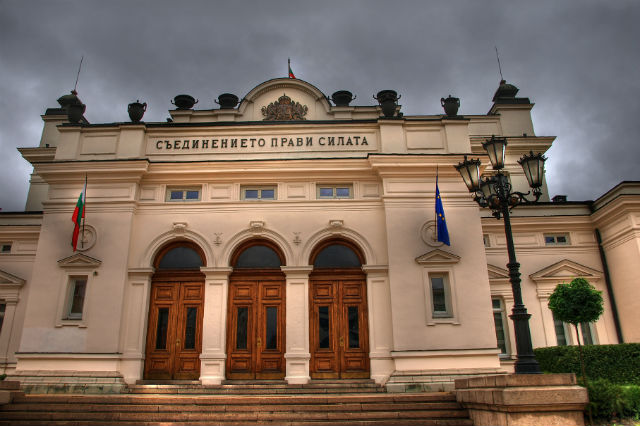
ILGA-Europe have condemned a fast-tracked law banning the portrayal of LGBTI identities in Bulgarian educational institutions, warning that it is an attack on children’s rights and a distraction to secure votes for far-right and Russia-aligned parties in forthcoming elections.
Today the Bulgarian Parliament voted with almost a full majority to adopt an anti-LGBT propaganda law which prohibits “the carrying out of propaganda, promotion and incitement in any way, directly or indirectly, of ideas and views related to non-traditional homosexual orientation and/or the determination of gender identity other than biological” in the system of pre-school and school education, by amending the Preschool and School Education Act (PSEA).
In both the reasoning behind the bill and during today’s debates it was mentioned that content “in the vicinity of” these educational establishments should also be banned. This means that any portrayal of LGBT people will be banned from schools and pre-schools, as well as any entity in the vicinity of them.
Both the first and second readings were held today, seven days after passing the Committee, in a clear fast tracking of the legislation through parliament in their last session before the summer and while most watchdogs and international institutions are on holiday.
The Revival Party drafted the law using wording based off the Russian and Hungarian anti-LGBT propaganda laws, which both countries have been promoting in Europe. The Revival Party is a member of the the Europe of Sovereign Nations group of the European Parliament, which includes MEPs who have declared interest in forming a “pacifist” and eurosceptic group to improve relations with Russia, and MEPs who were expelled from the Identity and Democracy (ID) Group shortly before the European election, due to reports of Nazi sympathising.
According to the Executive Director of ILGA-Europe, Chaber: “The proponents of the law, the Revival Party, and all those who voted in favour of the law claim that this is to protect young people, however the truth is that this is an attack on the rights of children, particularly LGBTI children.”
The aim of the law is extremely similar to the Russian anti-LGBT propaganda law adopted in 2012, and the Hungarian anti-LGBT propaganda law adopted in 2021, both of which have been deemed by various international stakeholders and institutions as incompatible with international and European human rights standards (see the Venice Commission’s opinions on the Russian[1] and Hungarian laws[2]).
The Venice Commission of the Council of Europe has repeatedly found such anti-LGBT propaganda laws to be in violation of the European Convention on Human Rights (ECHR). The more recent Venice Commission Opinion on the Hungarian anti-LGBT propaganda law found it to be incompatible with the ECHR and international human rights standards, including the law’s amendments regarding the educational sector.
It found that the law “fails to comply with the positive obligation of Hungary to ensure that the educational system provides children with objective and non-biased information on gender identity and sexual orientation and protects them from discrimination on the same grounds.”
According to Denitsa Lyubenova, Lawyer at LGBTI organisation Deystvie in Bulgaria: “The previous opinion of the Venice Commission makes it clear that such “anti-propaganda” bills put children and youth at risk by contributing to creating a threatening environment where LGBTI children can be subject to health-related risks, bullying and harassment, and they exclude LGBTI people from fully participating in a democratic society.”
A growing trend in Europe
This law follows repeated attempts in recent years by the Revival Party to table a Russia-style Foreign Agent Law, which would see civic space severely curtailed and contribute to the erosion of democratic checks and balances. In fact, this combination of Russian-style Foreign Agent laws and anti-LGBT propaganda laws is a growing trend in Europe, with Georgia most recently having adopted a Foreign Agent Law in May this year and then only five days later announcing an anti-LGBT legislative package which includes a ban on LGBT content in education, media and the arts.[3]
Says ILGA-Europe’s Executive Director, Chaber: “Today’s fast-tracking of this law through the Bulgarian parliament is a clear attempt to avoid scrutiny, and highlights the political nature of this law. Both Bulgaria and Georgia have national elections upcoming in October. LGBTI people are being used in both scenarios as scapegoats and as a distraction to secure votes for far-right and Russia-aligned political parties.”
The European Commission has highlighted, in its 2024 Rule of Law report, that the current procedure of legislative initiatives tabled by MPs in Bulgaria does not adhere to desired standards, such as allowing civil society consultation, conducting impact assessments, and assessing compliance with EU law.[4] This adopted law is a clear example of these rule of law shortcomings.
Says Chaber: “Given the extremely fast-tracked procedure for this law, its clear political aim is to scapegoat LGBTI people and legislate against their human rights. It is incompatible with Council of Europe and EU standards on law-making and non-discrimination. As such, ILGA-Europe request that the European Commission assess the law’s compatibility with EU law and call for a strong reaction from all EU Member States.”
[1] https://www.venice.coe.int/webforms/documents/default.aspx?pdffile=CDL-AD(2013)022-e
[2] https://www.venice.coe.int/webforms/documents/?pdf=CDL-AD(2021)050-e
[4] European Commission (2024), Rule of Law report, Bulgaria chapter, accessible at: https://commission.europa.eu/document/download/fd6bb85d-4aaa-4c79-88a2-8709edfb2002_en?filename=10_1_58051_coun_chap_bulgaria_en.pdf
[5] (C/2023/8627 final) https://eur-lex.europa.eu/legal-content/EN/ALL/?uri=PI_COM%3AC%282023%298627
[6] See pp 33-34.
Joint Statement: European Court confirms requirement for legal gender recognition in Bulgaria despite rejected complaint

TGEU, ILGA-Europe, Bilitis, and the Bulgarian Helsinki Committee welcome the European Court of Human Rights’ confirmation of Bulgaria’s obligation to provide for reliable legal gender recognition. However, we regret that the Court found the individual complaint to be inadmissible.
On 4 July 2024, the Court published its decision on the revision of the Y.T. v Bulgaria case, which was originally decided in 2020. While the Court concluded that the applicant had failed to inform the Court at the time of his success in obtaining legal gender recognition from another Bulgarian court and therefore retroactively found the case to be inadmissible, it still emphasised that Bulgaria is obliged to set up a robust legal framework for legal gender recognition (LGR), as confirmed in the later case of P.H. v Bulgaria (2022).
It is important to point out that the applicant had followed the rules and exhausted all domestic remedies in one set of proceedings and he was unable to obtain LGR. Considering the importance of having his identity documents match his gender identity, in the circumstances where timely remedy from the Court was not clear, the applicant then resorted to seeking LGR through other courts. While the applicant eventually successfully achieved LGR, the overall process proved that there is a lack of a quick, transparent and accessible procedure in Bulgaria.
The Court also indirectly criticised a decision from the Bulgarian Supreme Court of Cassation that effectively bans legal gender recognition for anyone in the country.
Member of the jury, Judge Šimáčková issued a remarkable dissenting opinion. She focused on both the human impact on the individual and the systemic failings of the Bulgarian government to remedy the situation.
TGEU, ILGA-Europe, Bilitis, and the Bulgarian Helsinki Committee jointly intervened in the case at the time and informed Council of Europe supervision authorities of the systemic failure of Bulgarian authorities to provide for legal gender recognition.
Our organisations express deep concern over Bulgarian authorities’ priorities. Instead of addressing the underlying human rights violations, the government decided to invest in having this judgement overturned. This does not change the situation at hand and does not relieve Bulgaria from its obligation to rectify it.
The situation for trans people seeking LGR in Bulgaria is dire. 94% of trans respondents from Bulgaria said they had not changed their legal gender. Whereas, 26% would like to do so in the future. 39% said that changing legal gender was not possible in their country, according to the 3rd FRA LGBTI Survey from 2023.
In 2023, the Council of Europe Committee of Ministers (CoM ), the supervising authority in the case, expressed deep regret over the lack of action by the Bulgarian authorities to rapidly elaborate legislative amendments introducing a Convention-compliant procedure for legal gender recognition. Taking into account the gravity of the situation and the uncertainty faced by trans people in Bulgaria who want to obtain LGR, the CoM exceptionally requested Bulgarian authorities to consider the possibility of adopting interim measures to allow legal gender recognition.
Background
In the original case, Y.T., a trans man from Bulgaria, had challenged the inability to change his name and gender marker in Bulgaria before the Court in 2016 as a violation of his convention rights. In 2020, the ECtHR found that Bulgaria breached the applicant’s right to private life, as protected under Article 8 ECHR, and confirmed that there is no system in Bulgaria in place for adapting documents corresponding to CoE standards (quick, transparent, accessible).
Y.T. is a “leading case” as it pointed out a systematic problem. In another “repetitive” case, P.H. v Bulgaria, the Court confirmed its findings from Y.T.
In December 2023, the Bulgarian government requested a revision of the Y.T. case as the applicant had been able to receive legal gender recognition before another Bulgarian court while the European Court of Human Rights deliberated on the case.
Four years after the original decision in Y.T., the Bulgarian government has still not implemented a process that ensures trans people have access to quick, transparent and accessible legal gender recognition procedures.
On the contrary, in February 2023, the Bulgarian Supreme Court of Cassation ruled that legal gender recognition is not possible in the Bulgarian legal framework.
During the implementation process, no visible signs of progress or political will are detectable.
The dissenting opinion
In her remarkable dissenting opinion, Judge Šimáčková, empathises with the human cost and the systemic adverse situation for trans people in Bulgaria. She critiques an over-formalistic and rigorous assessment by her fellow judges. She points out that the applicant was in a very distressing situation and fought not only for himself but for others in a similar situation in the country. Moreover, the applicant should not have been punished for formalistic reasons that the responsible legal representative should have known. She suggests that the Court could have instead reduced the compensation awarded to the individual and reviewed the relevant legal framework, which had at first been patchy and since 2022 completely inhibiting legal gender recognition.
More info
Find out more about the original case: https://tgeu.org/third-party-intervention-in-y-t-v-bulgaria-case/
2024 Decision in Revision in Y.T. v Bulgaria: https://hudoc.echr.coe.int/?i=001-234521
2020 Original decision in Y.T. v Bulgaria (french only): Y.T. c. BULGARIE (coe.int)
Joint submission in the implementation process of Y.T. v Bulgaria: https://hudoc.exec.coe.int/?i=DH-DD(2023)1015E
Learn about the situation of trans people in Bulgaria here and here
Our submission to the EC 2024 Rule of Law report
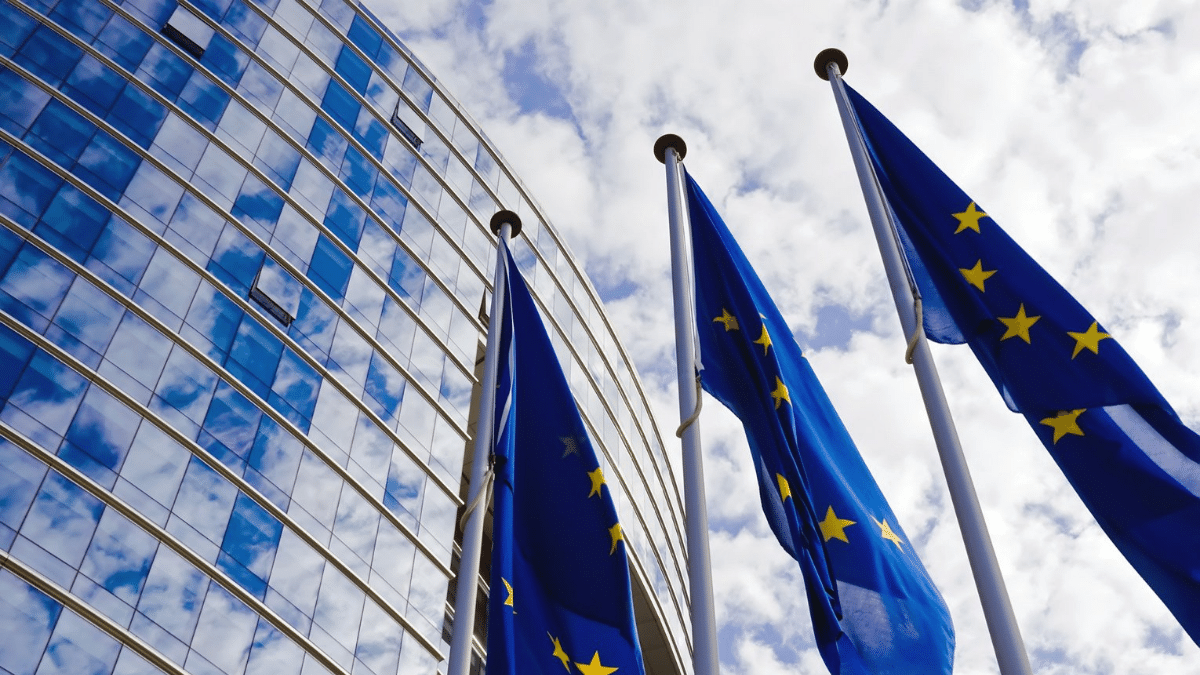
Over the past few years it has become increasingly clear that many government-led violations of LGBTI rights in EU Member States go hand-in-hand with an undermining of the rule of law and democracy. This includes in particular the degradation of the independence of judicial systems and the media landscape.
Particularly stark among this year’s submissions is the continual problem of non-implementation of European court judgments, especially around the right of LGBTI people to respect for their private and family life and the best interests of their children, as well as judgments related to legal gender recognition.
Efforts by authorities to restrict civic space; legal harassment, threats, hate speech and smear campaigns against LGBTI human rights defenders; and inadequate implementation of hate crime and anti-discrimination laws also remained prominent in 2023.
Bulgaria’s Supreme Court Rejects Baby Sara’s Bulgarian Citizenship

The application for a Bulgarian birth certificate for a child of two mothers, one of whom is a Bulgarian citizen, has been rejected by the country’s Supreme Administrative Court, despite an opposite ruling from the court of justice of the European union.
Arguing that Baby Sara is not a Bulgarian citizen, the country’s Supreme Administrative Court (SAC) said that their decision not to grant a birth certificate to the child of two mothers is final and cannot be appealed.
The case ‘Stolichna obshtina, rayon Pancharevo’ arose at the Court of Justice of the European Union (CJEU) when a same-sex couple were refused a birth certificate in Bulgaria for their infant daughter, who was born in Spain. The Bulgarian authorities asserted that the couple, one of whom is Bulgarian, could not be registered as parents on the child’s birth certificate, leaving the family in legal limbo, and Baby Sara stateless.
In December 2021, the CJEU ruled that it is contrary to the fundamental rights guaranteed by Articles 7 and 24 of the Charter for Baby Sara to be deprived of the relationship with one of her parents when exercising her right of free movement or for her exercise of that right to be made impossible or excessively difficult on the ground that her parents are of the same sex.
The ruling effectively said that if one EU country recognises a child’s parental relationship, then all EU countries should do the same to guarantee the child its freedom of movement across the region, a right enjoyed by all EU citizens.
After the CJEU judgment, the Bulgarian authorities were obliged to recognise baby Sara. In May, a District Court (SES) in the country ordered city hall authorities in the capital city of Sofia to issue a birth certificate to Baby Sara.
However, the SAC overturned this decision, and refused to recognise the child’s Bulgarian citizenship.
Describing the judgement as a “blow” to Bulgaria’s LGBTI community, the organisation Deystvie, who litigated with Baby Sara’s parents, said it “will not stop us”.
“Our struggle is just beginning, and we know we are right. The EU’s court is with us, and this was confirmed by the SES’s decision last May.”
Our submission to the EC 2023 Rule of Law report
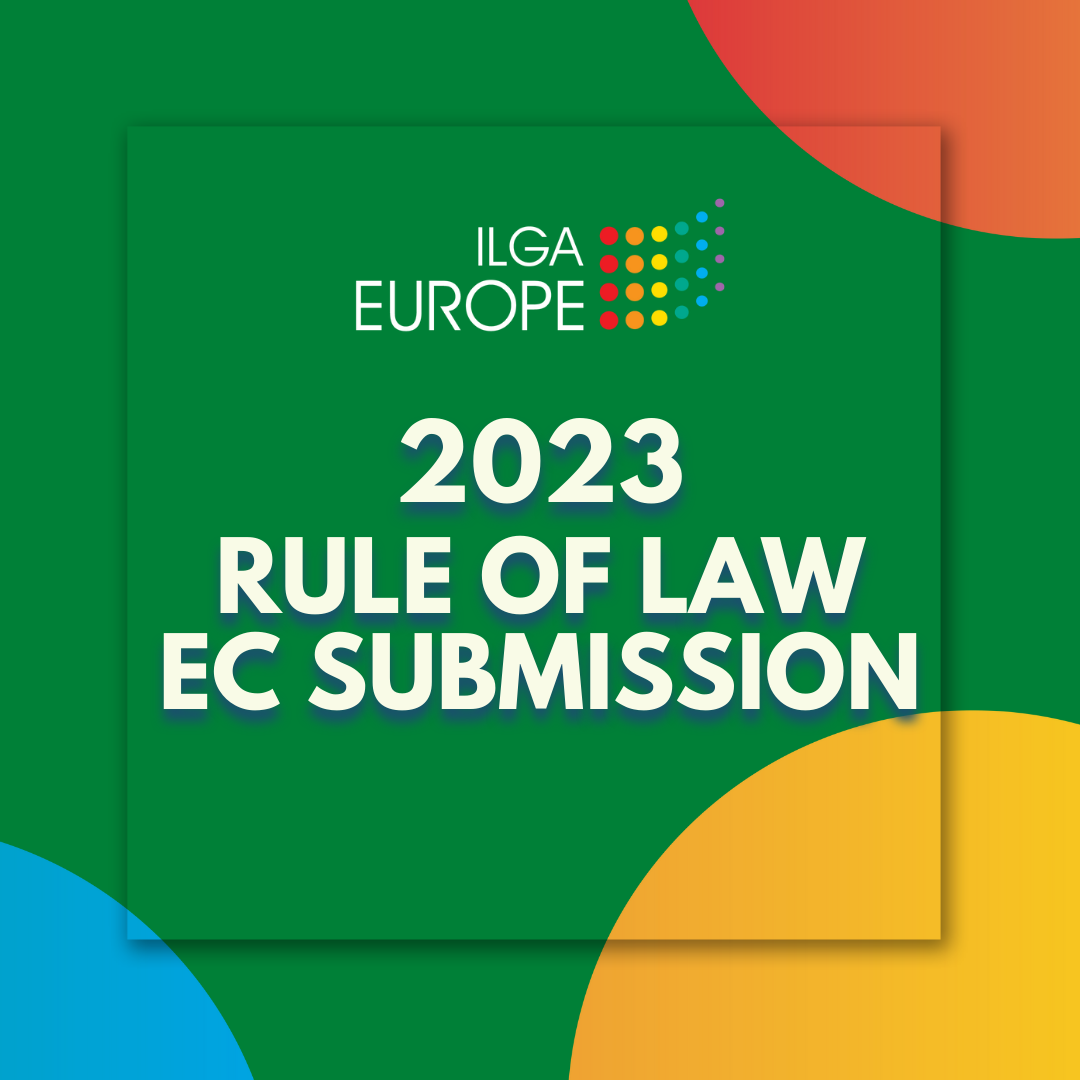
The submission covers developments in eight EU Member States as regards rule of law developments in the countries which have had an impact on the fundamental rights of LGBTI people and their democratic participation, with a focus on the past year (2022).
We have kept our inputs relevant to the content asked for by the consultation, and therefore we have not included all fundamental rights violations against LGBTI people, or all restrictions experienced by LGBTI civil society in the respective countries. We have only included them where there is a clear link to the issues of rule of law contained in the consultation.
Notably the submission covers the following topics:
- Manipulation of judicial processes to attempt to erode the human rights of LGBTI people and their access to justice;
- Politicians attempting to discredit and delegitimise the rulings of courts that uphold the rights of LGBTI people;
- Harassment and intimidation of LGBTI human rights defenders by law enforcement/prosecution services;
- Smear campaigns and negative narratives against LGBTI people, particularly where independence of media is threatened;
- SLAPPs against activists or journalists reporting on topics of public interest related to LGBTI;
- Censorship of LGBTI content;
- Tabling and adoption of laws aiming to reduce fundamental rights of LGBTI people;
- Tabling of laws aimed at restricting the functioning of civil society organistions;
- Arbitrary application of Covid-19 regulations to attempt to restrict the freedom of assembly of LGBTI people;
- Continued non-implementation of CJEU or ECtHR judgements which would improve the lives of LGBTI people;
- Anti-LGBTI discriminatory speech from political and religious leaders affecting public perception of LGBTI CSOs and creating an unsafe climate for LGBTI human rights defenders;
- Insufficient implementation of legal protection (e.g. protection against hate crime) for LGBTI people by responsible services, sometimes including Ombudspersons.
#IESofia2022: Daily Report, Saturday October 22
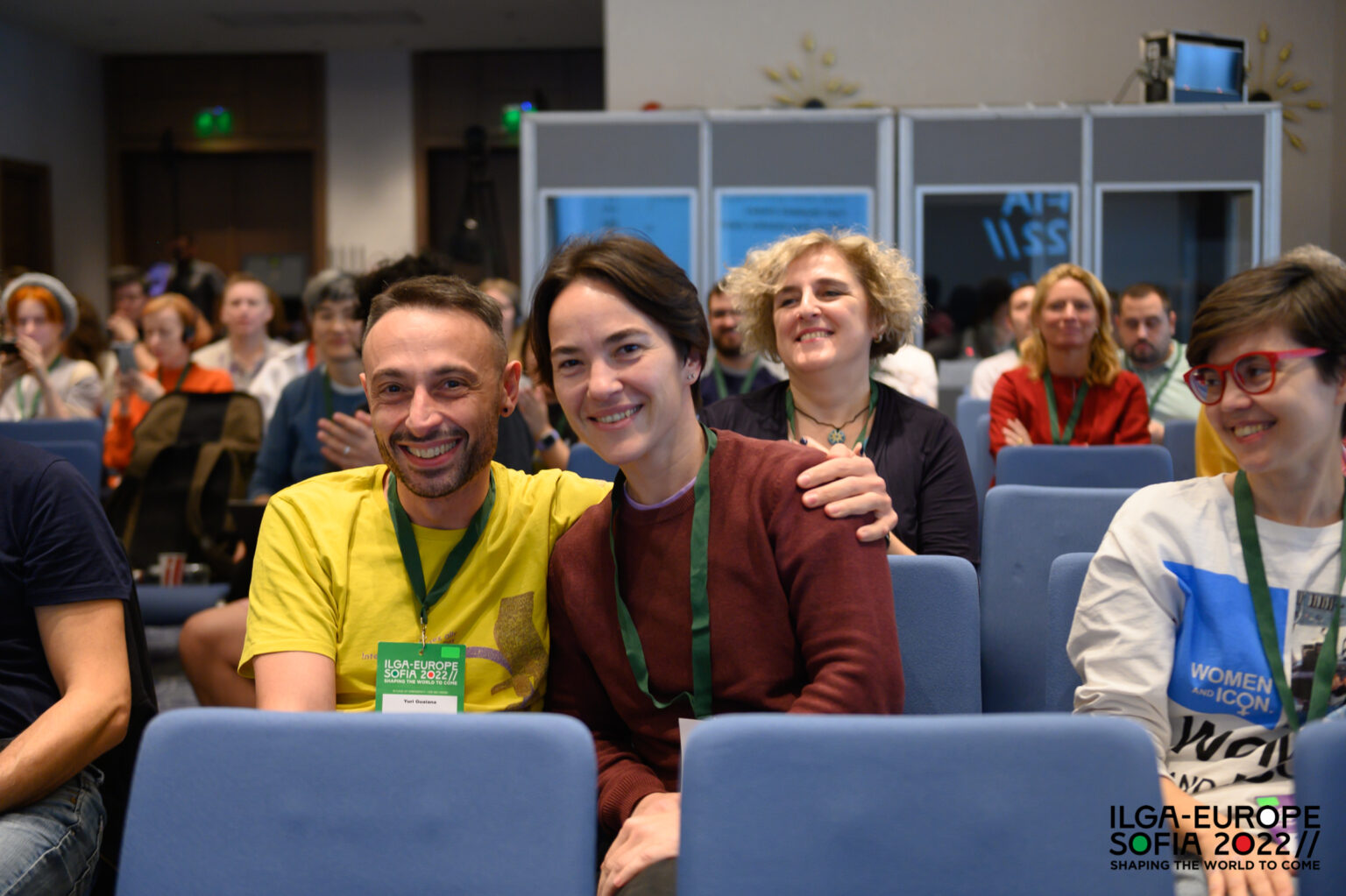
As our Annual Conference sadly comes to an end, over 300 participants enjoyed one last day of workshops and celebrated the election of the new ILGA-Europe board, before the Gala Dinner and one last dance together. Here’s a round-up of the final day!
This morning the breakfast room was calmer than usual. Many activists surely needed some extra sleep after putting their singing and dancing talents to work at our legendary karaoke night last night. The most popular band was Abba, with many of their hits chosen by super-enthusiastic singers, but the song many will remember is the Opus number, Life is Life – for reasons that will only be known to whoever was there!
Still, despite karaoke-induced tiredness, our spirited participants took part in the 13 workshops and applauded with joy at our third and last General Meeting.
The new ILGA-Europe board members, elected during the Conference, were announced: Yves Aerts, Ivan Dimov, Natia Gvianishvili, Xheni Karaj and Zhanar Sekerbayeva join Emina Bosnjak, Mamikon Hovsepyan, Tommy Petersen, Soudeh Rad and Penny Smith will sit on our Executive Board until October 2023. Yuri Guaiana and Olena Shevchenko will be regional representatives at the ILGA World Board for another year, while Rachael Moore, Dan Christian Ghattas, Elias Fjellander, Alina Mirozyan and Sabrina Sánchez will be leading some of the ILGA World steering committees. Finally, we had a chance to say goodbye in person to those leaving or have recently left the board: Yuri Yoursky, Anastasiia Danilova and Darienne Flemington – we will miss you so much!
13 wonderful workshops
Participating LGBTI activists learned about interacting with the media and managing change at their organisations at two four-hour long workshops this morning. At the ‘Drop the Mic’ workshop, participants rehearsed their media game in mock TV interviews with our facilitators and brought home key techniques to apply in their media relations.
In a parallel workshop, participants explored the potential bottlenecks and breaking points that their organisations may go through in face of disruptive events, like those we’ve experienced in recent times. Two-hours self-organised spaces gave the chance for trade union leaders to get together and to discuss how to shape the future by taking care of the past.
Money, money, money must be funny
We sang the Abba hit last night and today activists had the chance to gain some wisdom on funding and partnering with the private sector.
‘Who’s Afraid of Pinkwashing?’ asked COC Netherlands at one of the late morning workshops. In places like the Netherlands, some companies are pulling out of Prides due to criticism of pinkwashing. Companies taking less space at Prides is a good thing, but what are alternative ways of working with the private sector to keep companies engaged and supportive of the LGBTI movement? This workshop navigated these questions through an interactive role-playing exercise where participants wore the hats of company CEOs, LGBTI staff representatives, PR advisors and critical members of the public.
After lunch, the practical hands-on ‘Effective Fundraising Campaigns in Times of Crisis’workshopprovided practical tips for creating fundraising campaigns targeted at individual donors, with activists from Poland and Armenia sharing examples of how they’ve raised funds following hostile developments and in response to crisis.
In the afternoon too, participants had the opportunity to join workshops on anti-NGO laws, building alliances for displaced LGBTIQ Ukrainians and next steps on Ukraine response, queer imaginings and moral panics on trans minors.
We will all soon go back to the places we call home. Gathering together in person after three years would not have been possible without the wonderful support of our local hosts. Big shout outs to GLAS Foundation, Bilitis and Deystvie for enabling these unforgettable days of rich, nurturing and game-changing conversations! See you all in 12 months in Slovenia, if not beforehand!
Meet Simeon from the Bulgarian organisation, GLAS Foundation, co-host of our Annual Conference
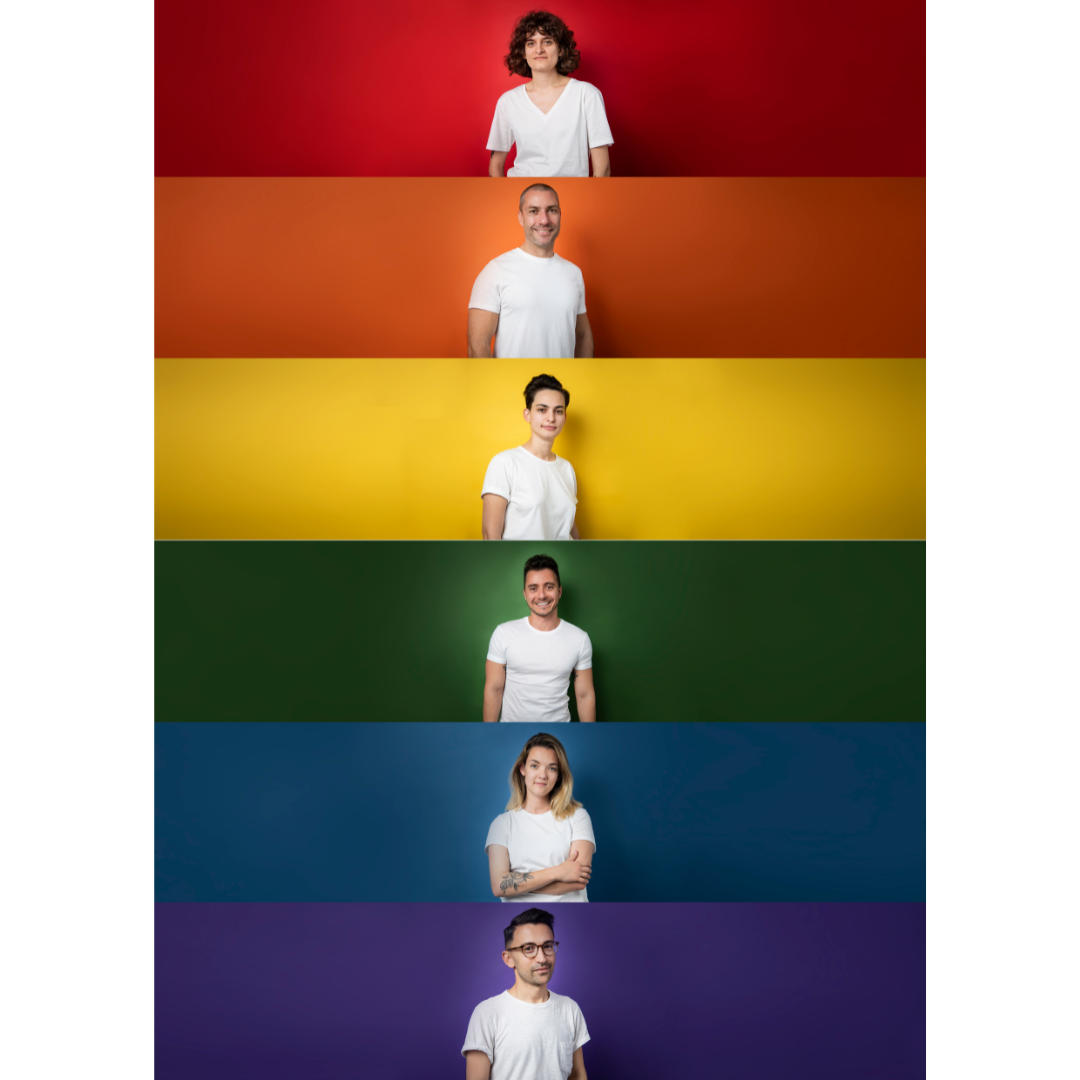
Simeon Vasilev, Chairman and Co-Founder of GLAS Foundation, one of the three Bulgarian LGBTI organisations co-hosting the ILGA-Europe Annual Conference in Sofia this month. Here Simeon talks about the recent elections in Bulgaria and what the possible outcome will mean for LGBTI people in the country.
“We are hoping that this gathering will help to put a focus on Bulgaria.”
Simeon Vasilev
Hi Simeon! Can you tell us what it means for your organisation to co-host ILGA-Europe’s Annual Conference in Sofia this year?
Beyond the great honour of being a host country for a second time in ILGA-Europe’s herstory, we are hoping that this gathering will help to put a focus on Bulgaria. Despite being part of the EU for so many years, we are drastically behind many other member states when it comes to legal protection and rights. For GLAS foundation, which I lead, it’s also a great opportunity to elevate our skills and competences and broaden our networks. We are glad to have a chance to put into practice so much of what we have learned from organising large scale events like Sofia Pride in the last couple of years. It also means strengthening our relationship with ILGA-Europe and not least – another great work flow with your team!
“This period of time has made the local LGBTI community more politically engaged.”
Simeon Vasilev
Originally, the decision to celebrate the Annual Conference in Sofia was made in 2019 but it was postponed it for well-known reasons. What key changes or events have taken place for the LGBTI movement and communities in Bulgaria ever since?
The major key change during that time has been the political environment. In 2021 alone, we had four elections. Again, this month another national election took place. It’s a constantly changing political flora and fauna, but I do believe it’s for the good. During that time our community centre – the Rainbow Hub, which we run with Bilitis foundation, was physically attacked by a far-right political candidate. We were later kicked out of the premises by other landlords.
However, the response of the local and international community was heart-warming. We managed to secure a new place with the donations we raised. I also think this period of time has made the local LGBTI community more politically engaged, which we have been advocating for a long time. It should be noted that in 2019 we had around 3,500 people at Sofia Pride, and this year we had over 12,000. This number alone speaks loudly for the recent progress during the last two or three years.
The GERB party has won the parliamentary elections and they will form a coalition. How do you expect this will affect LGBTI people’s rights and communities and organisations?
The GERB party have been silent or complicit to nationalist parties in the past and I don’t expect a major shift to happen among their leadership. It will be far more alarming if they make a coalition with the fourth party in votes – the ultranationalist, anti-EU and anti-Western Revival (Vazrazhdane). This would be a wake-up call for their EU political partners. I’m cautiously optimistic that the democratic liberal parties, second and sixth in the last elections, will be more vocal on the LGBTI rights.
The ILGA-Europe Annual Conference takes place in Sofia, Bulgaria from October 19-22. To learn more about Glas Foundation, visit their website here.
Meet Denitsa from the Bulgarian organisation Deystvie, co-host of our Annual Conference
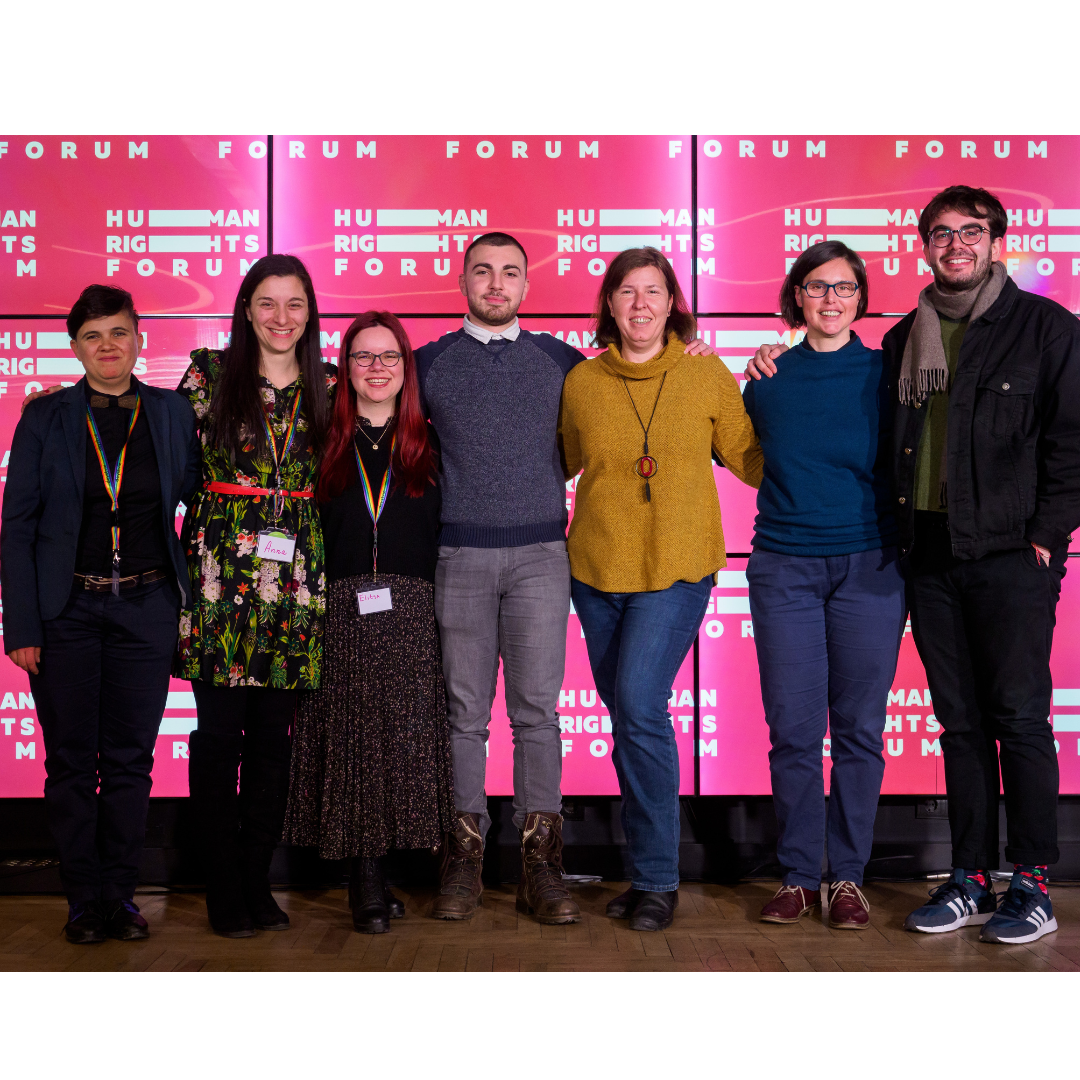
Denitsa Lyubenova is co-founder of Deystvie, one of the three Bulgarian LGBTI organisations co-hosting the ILGA-Europe Annual Conference in Sofia this month. Here Denitsa talks about the recent elections in Bulgaria and what the possible outcome will mean for LGBTI people in the country.
Our Annual Conference is almost upon us, and this year it will place later in the Bulgarian capital of Sofia. The conference is a very much needed moment of connection and empowerment for the LGBTI movement in Europe and Central Asia, as we have not been able to get together in person since 2019. We can only do this thanks to the support of the three Bulgarian organisations who will be hosting us all, Bilitis, Deystvie and Glas Foundation.
In this blog, Denitsa Lyubenova, lawyer and co-founder of Deystvie, tells us about what it means to co-host ILGA-Europe’s conference, what the key developments have been for Bulgarian LGBTI communities and organisations in recent years, and what they expect from the government elected this month, on October 3.
“For Bulgaria this will be the biggest LGBTI event of the decade, of the millennium and we’re really looking forward. We are working a lot to make it happen.”
Denitsa Lyubenova
Hi Denitsa, tell us, what does it mean for your organisation to co-host ILGA-Europe’s Annual Conference?
I think it’s a great opportunity, not only for our organisation and to show our work, but also to show the problems the community in Bulgaria face. And I think all the participants, people from Europe and Central Asia, International guests, politicians, donors and the media will basically feel what we experience here on a daily basis.
For Bulgaria this will be the biggest LGBTI event of the decade, of the millennium so far, and we’re really looking forward to it. We are working a lot to make it happen!
Originally, the decision to celebrate the Annual Conference in Sofia was made in 2019 but it was postponed it for well-known reasons. What key changes or events have taken place for the LGBTI movement and communities in Bulgaria ever since?
At the moment, the three organisations Glas, Bilitis and Deystvie are working together very closely. Each organisation is putting on a lot of events. For example, Deystvie has organised a couple of round tables with institutions. Also, since last year, we’ve been organising something that we’re very proud of, called Sofia Human Rights Forum. It’s not only an LGBTI related event. It concerns human rights as a whole and rule of law, not only in Bulgaria, but also for those who grew up here. It also touches base with human rights violations and opportunities all across the European Union. We had this event in March this year, with people talking about LGBTI rights and gender equality from Poland, the UK, and from Bulgaria as well.
“We need a stable government in order to work with it, in order to achieve more sustainable legislative changes.”
Denitsa Lyubenova
The GERB party has won the parliamentary elections and it is reported that it will form a coalition. How do you expect this will affect LGBTI people’s rights and communities and organisations?
Well, we’re still not sure if GERB will form a coalition, but if that happens, it will definitely not be with the pro-liberal and pro-democratic parties in Bulgaria, which took a stand for the LGBT rights in the last couple of elections.
I’m not very an optimistic person. My understanding is that if GERB forms a coalition, it will be with the far-right political party, Revival. But we’ll see. By the time the conference happens, we will know whether GERB will form a coalition or if we’ll have another election.
It’s a very difficult situation. Bulgaria has been in a political crisis for a year and a half. This prevents our work because we need a stable government to work with to achieve more sustainable legislative change. Withoug having a government in place, it’s very difficult for us to navigate these changes.
During the last six months, with the last government Bulgaria had, the Deystvie team managed to be part of a working group with the Ministry of Justice in order to amend the criminal code of Bulgaria, and we were very happy about this. We made a very big step forward for the LGBT rights in Bulgaria, especially in hate crime legislation. However, the government fell and as a result the amendment of the criminal code was not voted on in parliament.
Also, we’re looking forward for the implementation of the Baby Sara case. The lack of government prevents us from getting the judgment of the Court of Justice of the EU, recongising Baby Sara and her same-sex parents, implemented. At this rate, I think we’re going to have Granny Sara before she gets her rightful citizenship in Bulgaria.
The ILGA-Europe Annual Conference takes place in Sofia, Bulgaria from October 19-22. To learn more about Deystvie, visit their website here.
Meet Lilly from Bilitis in Sofia, co-host of ILGA-Europe’s Annual Conference
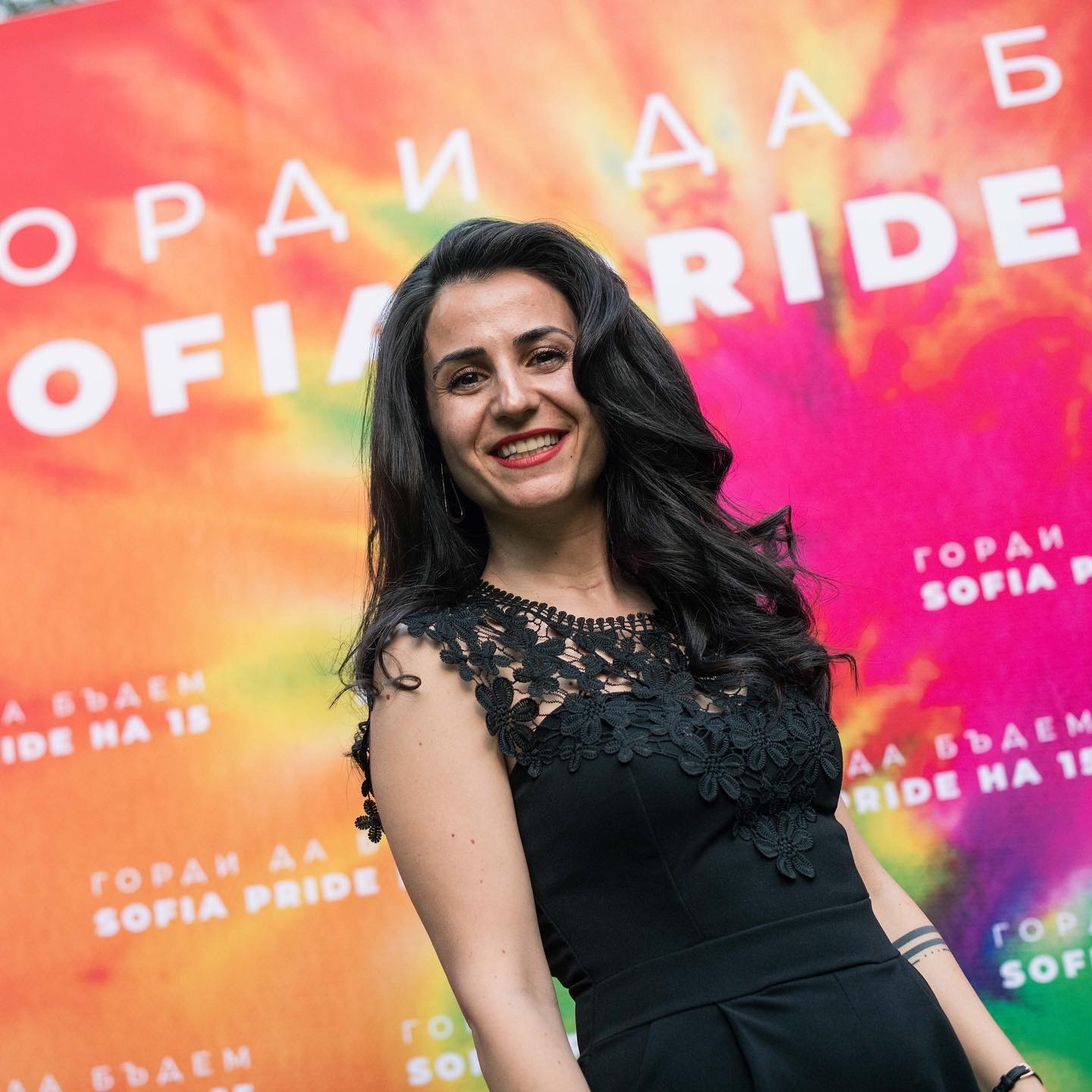
Lilly Dragoeva is the Executive Director of Bilitis, one of the three Bulgarian LGBTI organisations co-hosting the ILGA-Europe Annual Conference in Sofia this month. Here Lilly talks about what it means to have the largest European LGBTI activism conference in her country.
We are almost ready for our Annual Conference, which will place later this month in Sofia. The conference is a very much needed moment of connection and empowerment for the LGBTI movement in Europe and Central Asia, as we have not been able to get together in person since 2019. We can only do this thanks to the support of the three Bulgarian organisations who will be hosting us all, Bilitis, Deystvie and Glas Foundation.
In this blog, Lilly Dragoeva from Bilitis, tells us about what it means to co-host ILGA-Europe’s conference, what the key developments have been for Bulgarian LGBTI communities and organisations in recent years, and what they expect from the government elected this month, on October 3.
“Hosting the biggest European political LGBTI event inevitably puts pressure on local politicians and institutions to finally take a step in advancing LGBTI equality.”
Lilly Dragoeva
Hi Lily, can you tell us what it means for your organisation, Bilitis, to co-host ILGA-Europe’s Annual Conference in Sofia?
Bilitis is proud to be one of the co-hosts of the conference and we are excited to welcome activists from all across Europe and Central Asia! Bilitis is the oldest active LGBTI organisation in Bulgaria but we weren’t part of the hosting team of the first ILGA-Europe conference in Sofia, back in 2006. So, we see this as a great opportunity to shed a light on the situation in Bulgaria and our work, especially in the last few years when we see an organised effort to attack and scapegoat the LGBTI community in the country.
At the same time, hosting the biggest European political LGBTI event of the year in Bulgaria’s capital inevitably puts pressure on the local politicians and institutions to finally take a step in advancing LGBTI equality – something that is much needed and long overdue. It is also a wonderful occasion to reconnect with friends and colleagues from all over and remind ourselves how energising it is to be physically together, exchanging ideas, sharing struggles, laughing, crying, dreaming.
And last but not least, we hope that this event will inspire and empower the Bulgarian LGBTI community to be relentless in demanding justice and equality for all.
“It’s no surprise that the increased visibility of the topic also led to an increase in threats and attacks on the community.”
Lilly Dragoeva
Originally, the decision to celebrate the Annual Conference in Sofia was made in 2019, but it was postponed it for well-known reasons. What key changes or events have taken place for the LGBTI movement and communities in Bulgaria since then?
There have been quite some changes over the last three years. The visibility of our work and the visibility of the LGBTI community has significantly increased as a result of the ongoing efforts of the LGBTI organisations, non-formal groups, activists and artists, and our partners. On the one hand, this has led to a greater number of allies and supporters to the cause – from other civil society actors, and through businesses, to more and more Bulgarian citizens. This can be seen in the number of projects and initiatives that are taking place all year around and most evidently at Sofia Pride, which gathered a record number of over 12,000 participants in June this year. We can definitely see and feel that the levels of societal acceptance are increasing.
At the same time, with visibility comes a greater level of negative reactions. The phrase “do whatever you want, just don’t show it publicly” is still widespread. It’s no surprise that the increased visibility of the topic also led to an increase in threats and attacks on the community.
In 2021 we witnessed an unprecedented organised attack on the LGBTI events and spaces around Sofia Pride, which was taking parallel to the second parliamentary elections campaign. Far-right actors attempted to capitalise on the situation. Vandalising spaces, provoking participants, using hate speech and intimidating LGBTI people was an everyday event in May and June 2021.
The situation de-escalated to an extent in the autumn, but on October 30 our community centre, Rainbow Hub was attacked and destroyed, and my colleague Gloriya was physically assaulted. This put us into an entirely new situation of threat and fear for the physical safety of activists and community members. At the same time, there was a really strong wave of solidarity coming from many groups in the society, including politicians, which showed that Bulgarians still refuse to tolerate acts of brutal aggression, regardless of who the victims are.
The GERB party won the parliamentary elections this month and reports say they will form a coalition. How do you expect this will affect LGBTI people’s rights and communities and organisations?
First of all, I’m not sure they will form a coalition because the situation in the parliament is pretty uncertain and almost all political parties have declared that they will not join a government led by GERB. If this is the case, then they will not have a majority, and even if they form a minority government, it will be very unstable. In that scenario there will be another round of elections, the fifth in less than two years, which will be catastrophic not only for LGBTI people but for the country as a whole.
However, should GERB come to power, I expect nothing good for the LGBTI community. They have been in power for more than 12 years and we saw that there were no advancements regarding LGBTI rights whatsoever, regardless of the ongoing efforts from the civil society and despite of the numerous recommendations from international and intergovernmental organisations. So, should GERB come to power, I expect a continuation of their “don’t ask – don’t tell” policy, which means LGBTI organisations and activists will continue to be left without a seat at the table.
This is extremely harmful as it creates a notion that LGBTI people don’t deserve to participate in public life in Bulgaria, or that LGBTI people are just a small group of noisy people demanding special rights and privileges. Let’s not forget that it was GERB who refused to ratify the Istanbul Convention in 2018. GERB allowed their far-right coalition partner VMRO and other actors to spread disinformation about the so called “gender ideology” and to scapegoat the LGBTI community for political gains.
The ILGA-Europe Annual Conference takes place in Sofia, Bulgaria from October 19-22. To learn more about Bilits, visit their website here.
Theme for the ILGA-Europe 2022 Conference Announced.

As ILGA-Europe gears up in the organisation of our Annual Conference, which takes place in Sofia this October, the theme ‘Shaping the World to Come’ has been announced
The theme for the 2022 ILGA-Europe conference will be ‘Shaping the World to Come’. This has been identified by the staff and board of ILGA-Europe at a moment in history when change is taking place so many diverse levels, and when the LGBTI movement needs to clarify its power and position in the evolving world.
With climate change, mass migration, the rise of right-wing populist forces and the exploitation of the digital world, politics have become ever more polarised and divided, based on the shaping of carefully constructed narratives rather than facts. Amid this, the stakes are high for the rights, freedom and equality of marginalised groups.
According to Executive Director of ILGA-Europe, Evelyne Paradis, “The change we are going through is being shaped by those in power. One of those powers is a long-standing, cohesive, forward-thinking, organised and active LGBTI movement, who alongside allies across the human rights arena, has been core to shaping a better society for all.
“Our place at the table in shaping the world to come is essential, but there are questions we need to ask ourselves as we go forward. How do we secure our place at the table? How do we ensure those who are never given a place at that table are included in shaping our world? How we continue to be empowered in solidarity and alliance, and how do we continue to empower others, so that the LGBTI movement is core to a better future for all?”
These questions will be integral to a rich programme of plenaries, workshops and talks that will take place at the conference in Sofia this coming October, organised and led both by ILGA-Europe staff and member organisations.
To find out more about this year’s ILGA-Europe conference, click here.
Bulgarian Court Rules Baby Sara Must Be Issued Birth Certificate
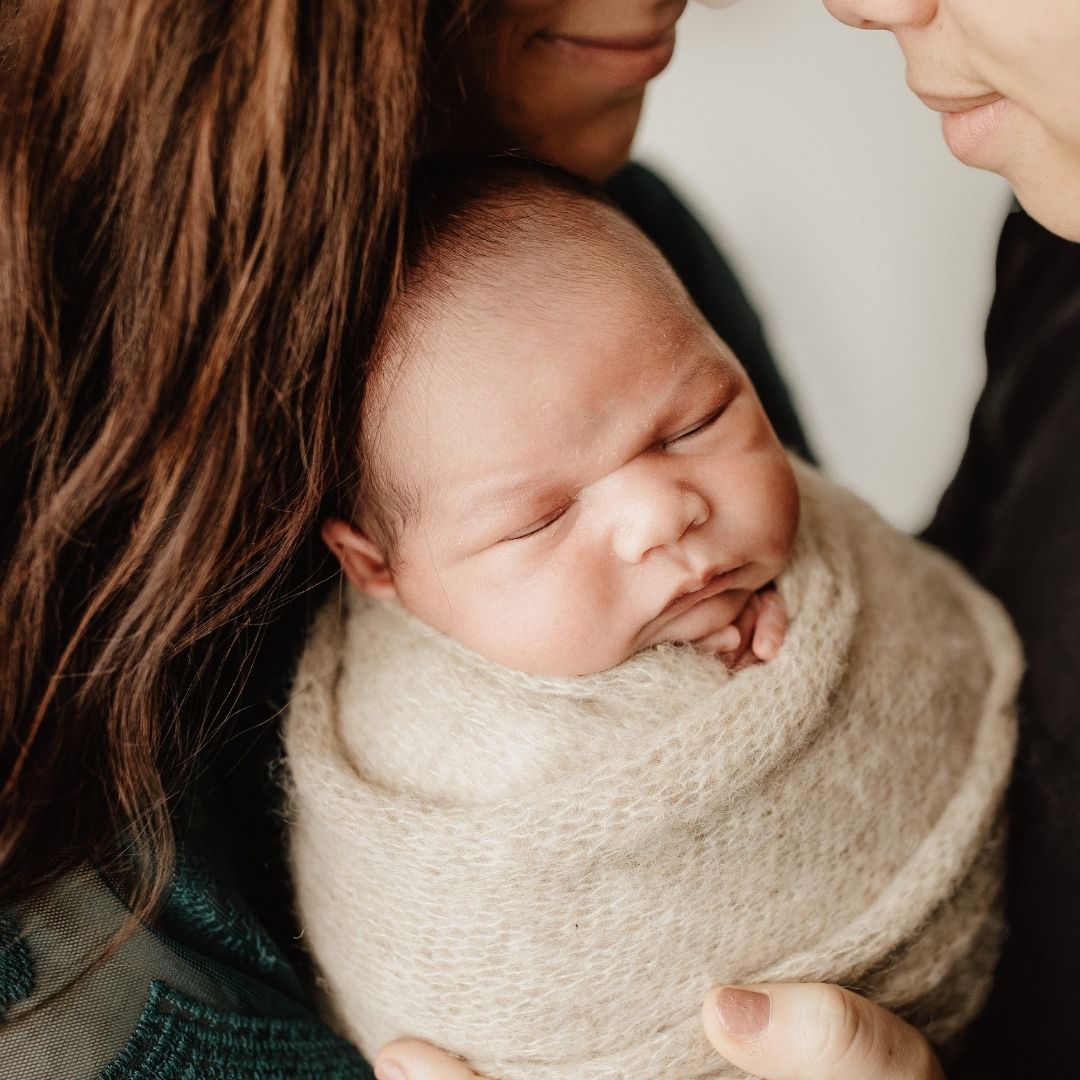
A Bulgarian court has ordered city hall authorities in the capital city of Sofia to issue a birth certificate to the baby born to a same-sex couple from Bulgaria and Gibraltar, known as ‘Baby Sara’.
The court’s decision was declared on Monday (16 May) follows a ruling last December by the Court of Justice of the European Union (CJEU), saying that if one EU member state recognises a parental relationship between a child and its parents, then all member states should, in order to give the child it’s right to freedom of movement.
The case ‘Stolichna obshtina, rayon Pancharevo’ arose when a same-sex couple were refused a birth certificate in Bulgaria for their infant daughter, who was born in Spain. The Bulgarian authorities asserted that the couple, one of whom is Bulgarian, could not be registered as parents on the child’s birth certificate, leaving the family in legal limbo, and Baby Sara stateless.
The CJEU ruled that it is contrary to the fundamental rights guaranteed by Articles 7 and 24 of the Charter for the child to be deprived of the relationship with one of her parents when exercising her right of free movement or for her exercise of that right to be made impossible or excessively difficult on the ground that her parents are of the same sex.
The ruling asserted that the Bulgarian authorities are obliged to issue an identity card or a passport to Baby Sara, which all other EU Member States are obliged to recognise.
Welcoming the Bulgarian court ruling that Baby Sara must be issued her birth certificate in light of the CJEU judgement, Arpi Avetisyan, Head of Litigation at ILGA-Europe, which provided strategic legal support during the proceedings before the CJEU, said: “The decision from Sofia Administrative Court sets a model example for applying the CJEU’s judgment in Baby Sara’s case. The Court acted swiftly and with clarity. All eyes are now on the Bulgarian authorities to comply with the Sofia Administrative Court decision and issue the birth certificate promptly. At ILGA-Europe, we couldn’t be happier for Baby Sara and her parents to finally be able to be recognised and travel as a family. All rainbow families across the EU should be able to enjoy their right to freedom of movement, without fragmentation and discrimination.”
The decision of the Bulgarian court comes almost on the fourth anniversary of another landmark CJEU decision in favour of freedom of movement for rainbow families, the Coman judgement against Romania, which has yet to be implemented by Romanian authorities.
On 5 June 2018, the CJEU ruled that the term spouse includes same-sex spouses under EU freedom of movement laws. Four years on, Clai Hamilton, spouse of Romanian citizen Adrian Coman, has not been granted residency yet in Romania.
According to Avetisyan, “It is very disappointing that four years on we are still talking about implementation of Coman judgment – both in relation to the applicants themselves, but also for other couples in Romania who continue suffering as a result of authorities’ unwillingness to make the necessary changes. This judgment was a big achievement for establishing equal rights for all EU citizens to enjoy their freedom of movement, without discrimination based on sexual orientation.
“We trust the European Commission will act firmly to ensure that EU law is implemented, in Romania and other Members States all across the EU, and make sure rainbow families are treated equally and with dignity.”
How Baby Sara and her mums have pushed forward the rights of all rainbow families across the EU
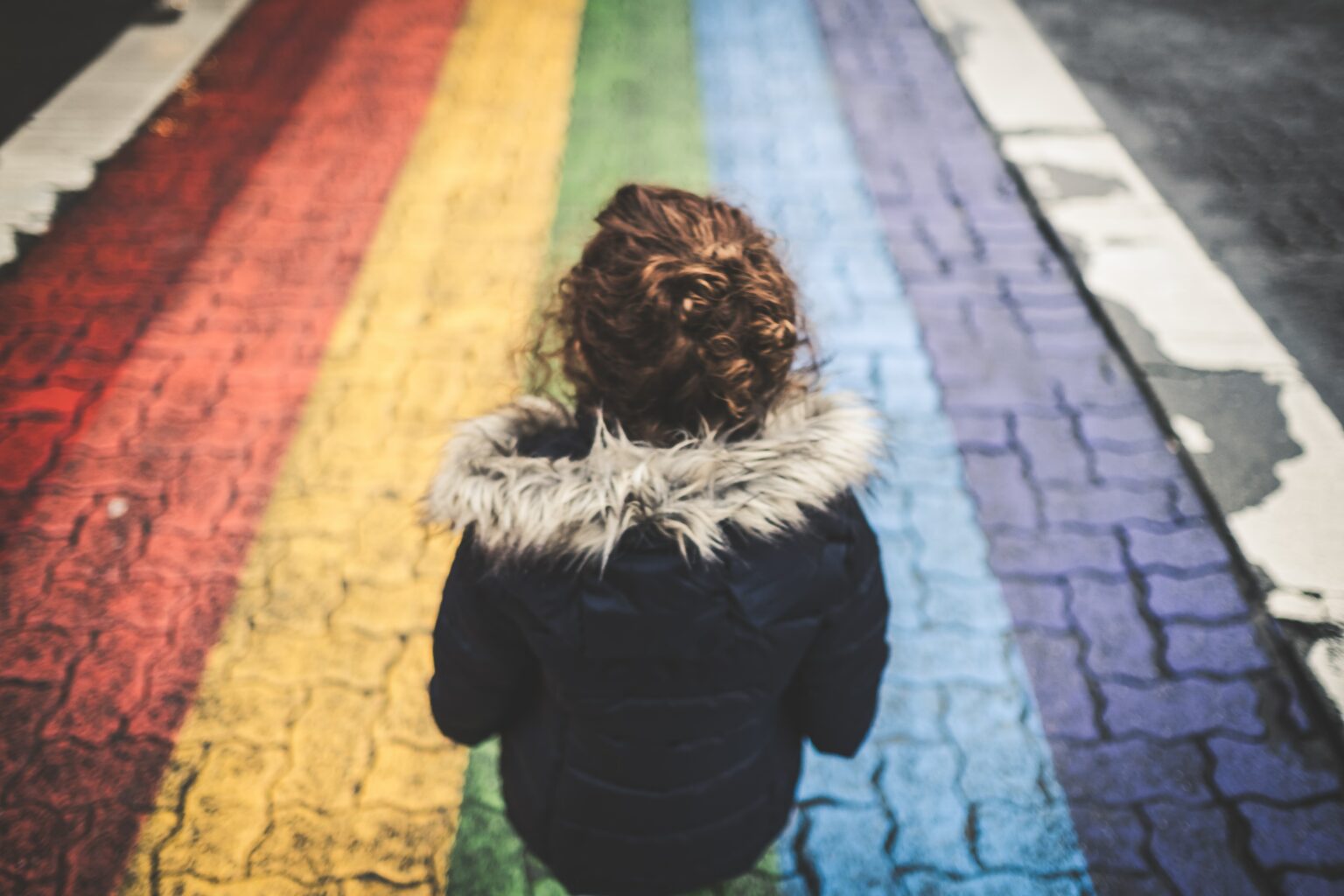
When an EU country recognises a child and its same-sex parents as a family, all EU countries should recognise them as such, so to guarantee their freedom of movement. This is what the EU’s top court ruled in December. But how this case has advanced LGBTI rights in the European Union and what comes next for rainbow families?
At the end of 2021, the Court of Justice of the European Union (CJEU) ruled that if one EU country recognises the child’s parental relationship, then all EU countries should do the same to guarantee the child its freedom of movement across the region, a right of all EU citizens.
The ‘Baby Sara’ case, as it has become known, will have a long-term impact on rainbow families in the EU. Born in Spain to a lesbian couple, baby Sara was denied citizenship there because neither of her Bulgarian and Gibraltarian mothers are of Spanish descendent. Under the British Nationality Act, Gibraltar-born parents cannot transfer UK citizenship.
So, Bulgaria was the one reasonable option left for the family. But same-sex unions are not recognised in Bulgaria and two persons of the same sex cannot be registered as the parents of a child. The Bulgarian authorities thereby refused to issue a birth certificate on which the parents are two women, choosing to not recognise a valid EU birth certificate from another member state. This left baby Sara at risk of statelessness. She had no identity documents and could not leave Spain.
After December’s CJEU judgment, the Bulgarian authorities are obliged to issue an identity card or a passport to baby Sara, a ruling that all other EU countries should recognise.
So, what are the real implications for rainbow families?
Following the CJEU ruling, Baby Sara and her mothers must be recognised as a family for the purposes of EU law, and must be able to enjoy freedom of movement in all EU countries. Freedom of movement, the right of persons to move and reside freely within the territory of EU member states, is a right of all EU citizens.
This is the first case where the CJEU has ruled on cross-border recognition of parental ties in rainbow families. It stated that it is against the fundamental rights of the child to be deprived of the familial ties established in an EU country when traveling in the EU. The family ties were not recognised in baby Sara’s birth cert application because the parents are two persons of the same sex.
The court also clarifies that national identity cannot be used as an argument to deny freedom of movement to rainbow families. This means that it does not undermine Bulgaria’s national identity to recognise parenthood established in Spain, another EU country, an argument often brought by those countries that do not recognise same-sex families.
In other words, the Court has not obliged Bulgaria to allow and recognise same-sex couples in its territory as the parents of a child. Rather, it simply requires Bulgaria to recognise the familial ties among the members of rainbow families — as these have been established in another EU country — when the family moves to its territory.
Finally, the ruling gave legal endorsement to European Commission’s President Ursula von der Leyen 2020 State of Union address, when she affirmed that “If you are parent in one country, you are parent in every country”.
Will the Baby Sara judgement immediately free up movement for rainbow families in the EU?
Implementation is the crucial part of any European court ruling, and often this is fraught with difficulties and time consuming.
The work of the CJEU has finished for now. The Bulgarian authorities must find a solution and decide on the type of identity documents for Sara. This might take time, and considering the situation of LGBTI rights in the country (Bulgaria is in 37th position out of 49 in our 2021 Rainbow Map of legal rights for LGBTI people in Europe), it may mean additional hurdles for baby Sara’s family and further litigation. For example, the Coman case, also related to same-sex unions and freedom of movement, has not been implemented by Romania after three years since the judgment.
However, if Bulgaria or other countries that do not recognise rainbow families refuse to implement the CJEU judgment, the European Commission can start infringement procedures, as these countries would breach EU law. If carried to their last step, this can mean financial penalties against Bulgaria.
So, it’s not as easy as a judgement being made and every country in the EU suddenly opening its borders to rainbow families. But, the world watched the judgement in the Baby Sara case closely, and it was a major step forward in the recognition of the children of same-sex parents across the European Union. We will be watching the implementation of this case very closely too, and will report on how it is progressing.
At the same time, the European Commission is in the process of working on new legislation on the EU-wide recognition of parenthood as well as on guidelines on ensuring freedom of movement for all. We will work hard to ensure that the judgment will be fully reflected and respected there, with the hope that one day soon, all rainbow families will be able to enjoy the rights that every other family in the EU take for granted.
Judgment in Case Stolichna obshtina, rayon ‘Pancharevo’
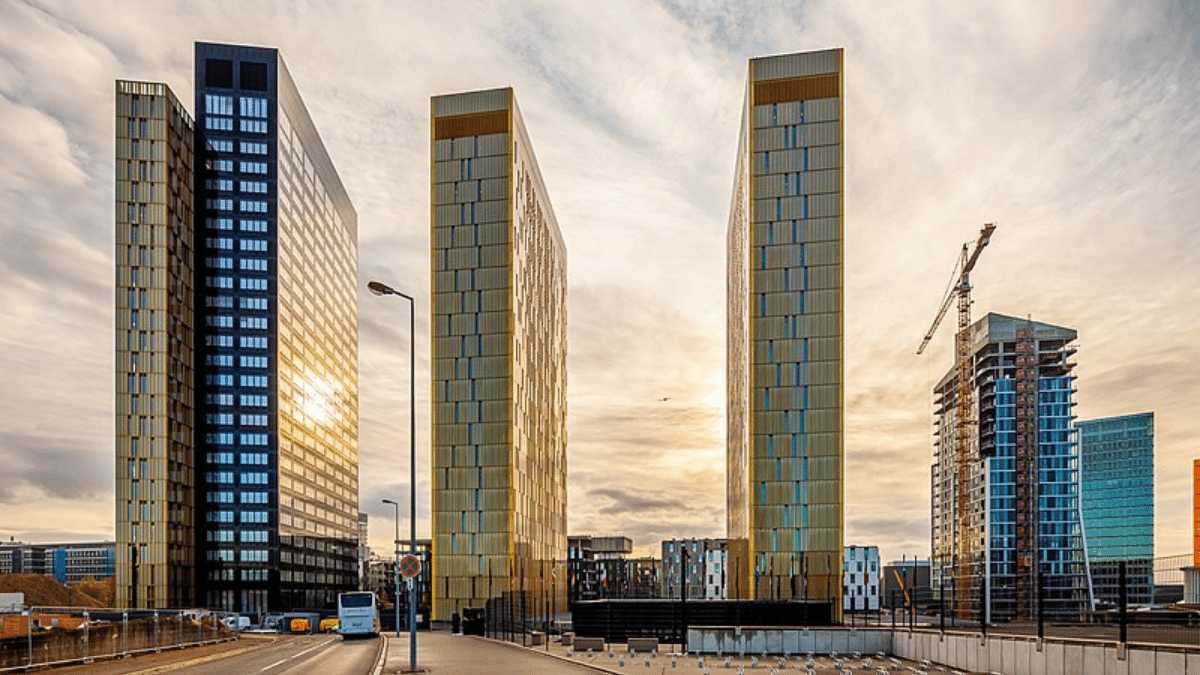
Child, being a minor and a Union citizen, whose birth certificate was drawn up by the host Member State and designates as parents two persons of the same sex: the Member State of which the child is a national is obliged to issue an identity card or a passport to that child without requiring a birth certificate to be drawn up beforehand by its national authorities.
Top EU Court Recognises Relationship of Same-sex Parents and their Children Under EU Law
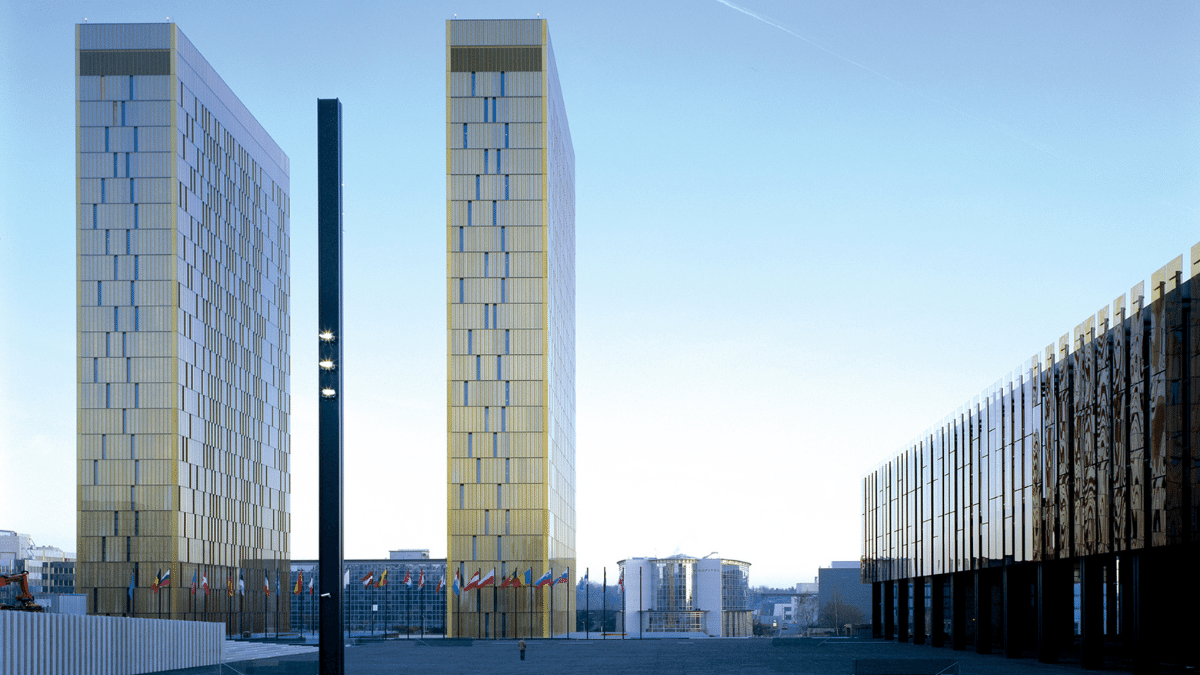
In a landmark judgement, the Court of Justice of the European Union has ruled that a child and its same-sex parents must be recognised as a family, the child should be issued a Bulgarian passport, and the family should have free movement in all Member States of the European Union.
Today, December 14, the Court of Justice of the European Union (CJEU) ruled that if one EU member state recognises a parental relationship between a child and its parents, then all member states should, in order to give the child it’s right to freedom of movement.
The case ‘Stolichna obshtina, rayon Pancharevo’ arose when a same sex couple were refused a birth certificate in Bulgaria for their infant daughter, who was born in Spain. The Bulgarian authorities asserted that the couple, one of whom is Bulgarian, could not be registered as parents on the child’s birth certificate, leaving the family in legal limbo.
Bulgarian born Kalina Ivanova* and Gibraltar-born Jane Jones* are the mothers of Sara, who was born in Spain in 2019. Under current Spanish law, the child could not acquire Spanish citizenship because neither Kalina or Jane is a Spanish citizen. The child was also denied British citizenship because Jane was born in Gibraltar of British descent, and under the British Nationality Act (1981), cannot transfer citizenship to her daughter.
Therefore, Kalina requested Bulgarian citizenship for their daughter. Bulgarian authorities rejected a request for citizenship of the child, the application, arguing that a child cannot have two mothers, and refused to issue a birth certificate in which the parents are two persons of the same sex.
Sara was therefore deprived of Bulgarian, and therefore European citizenship, and was at risk of statelessness. Currently, the child has no personal documents and cannot leave Spain, the country of the family’s habitual residence. The lack of documents restricts Sara’s access to education, healthcare, and social security in Spain.
In Bulgaria, same-sex marriages and same-sex registered partnerships are not recognised.
Today the CJEU ruled that it is contrary to the fundamental rights guaranteed by Articles 7 and 24 of the Charter for the child to be deprived of the relationship with one of her parents when exercising her right of free movement or for her exercise of that right to be made impossible or excessively difficult on the ground that her parents are of the same sex.
The ruling asserts that the Bulgarian authorities are obliged to issue an identity card or a passport to Baby Sara, which all other EU Member States are obliged to recognise.
Welcoming the ruling, Baby Sara’s parents said: “We are thrilled about the decision and cannot wait to get Sara her documentation and finally be able to see our families after more than two years. It is important for us to be a family, not only in Spain but in any country in Europe and finally it might happen. This is a long-awaited step ahead for us but also a huge step for all LGBT families in Bulgaria and Europe.
“Thank you so much to the LGBT Deystvie organisation in Bulgaria and especially to our legal representation, Denitsa Ivanova and Veneta Limberova for fighting for our family and countless others in our position. Thanks too all the people and organisations who supported us in this process: ILGA-Europe, NELFA, ACCEPT Romania and many others.”
According to Arpi Avetisyan, Head of Litigation at Europe’s leading LGBTI rights organisation, ILGA-Europe, which intervened in the case: “We are very pleased with CJEU’s judgment this morning. It gave legal endorsement to the EC President Ursula von der Leyen DL’s words, delivered during last year’s State of the Union address: ‘If you are a parent in one country, you are parent in every country’. The judgment has brought long-awaited clarification that parenthood established in one EU Member State cannot be discarded by another, under the pretence of protecting the “national identity”. This is a true testament to the EU being a union of equality and we look forward to seeing rainbow families enjoying their right to freedom of movement and other fundamental rights on equal footing to anyone else. It is important that the judgment is implemented imminently, not only for baby Sara and her family, but also for other families facing similar struggles across the EU.”
*Names have been changed.
For comment, contact Ana Muñoz media officer at ana@ilga-europe.org and +32493356055
The stark situation for LGBTI rights in Eastern Europe and Central Asia
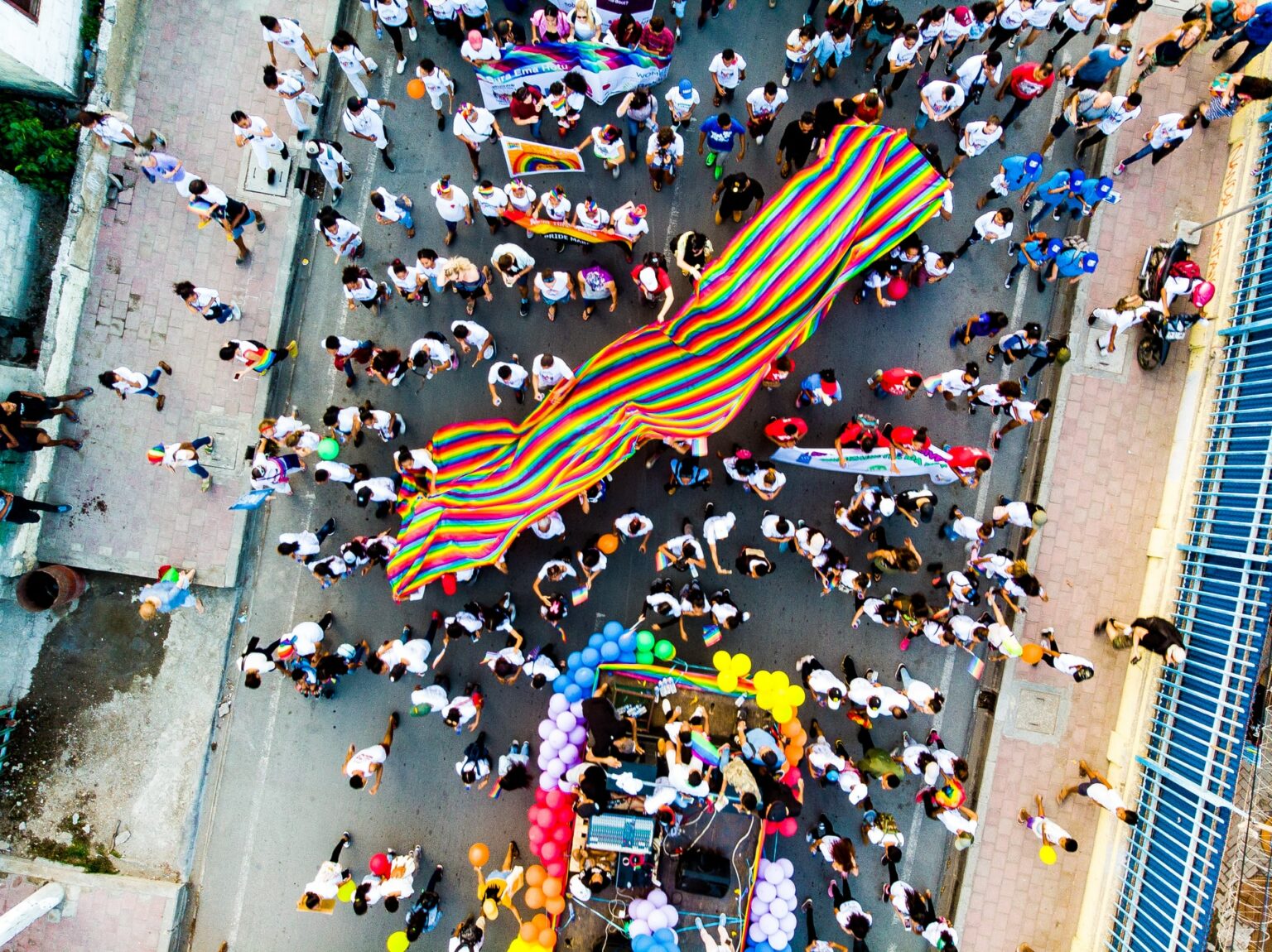
Hungary and Poland have been in the spotlight a lot for their anti-LGBTI policies, but they are not the only countries where political leaders are acting against LGBTI communities. Here, we take a look at the political situation for LGBTI people in Eastern Europe and Central Asia in the first half of 2021.
The COVID-19 pandemic and anti-LGBTI forces have deeply impacted the LGBTI movement in Europe and Central Asia. Some governments used the health crisis against human rights defenders by limiting their use of public space, while the same restrictions have not applied to many of the activities of the anti-LGBTI movement. As a result, the pandemic has accelerated deterioration of the human rights protection systems, disrupted effectiveness of monitoring and documentation, and made the work of activists even more precarious. The worrying trends that began in 2020 continue to grow this year as a number of laws proposed and adopted in different countries limit the ability of civil society to answer to current challenges and political crackdowns.
The Dignity for All: LGBTI Assistance Program is a consortium formed by ILGA-Europe and seven other leading human rights and LGBTI organisations around the world. It provides emergency assistance, advocacy funding, and security support to human rights defenders and civil society organisations under threat or attack due to their work for LGBTI rights. Since 2012, the program has provided emergency assistance grants to human rights defenders and civil society organisations in 95 countries and territories.
Thanks to this program, we’ve been able to support the movement in the region for almost a decade. The number of requests for emergency assistance in the first six months of 2021 has considerably increased. A lot of requests were related to the repercussions of anti-LGBTI actions, the pandemic, and wellbeing issues, along with the usual security assistance provided by the program.
Through this work, we’ve been able to assess the context in the region and provided funding to civil society organisations to respond to developments like those described below.
Take a look at the political situation for LGBTI people in Eastern Europe and Central Asia in the first half of 2021:
Albania: hate speech and hate attacks
In mid-June a trans activist in Tirana was physically attacked one week after heavy hate speech in the media around a discussion on LGBTI family rights. The debate was manipulated with headlines such as ”The LGBTI community aims to remove the word mother”. Other activists in Albania received hundreds of targeted death and rape threats. This clearly shows the trend of online hatred spilling over to the real world when the perpetrators feel encouraged by hate speech to physically attack activists and the LGBTI community.
Armenia: ground-breaking judgment for LGBTI people
While the LGBTI movement continues to deal with the shockwaves of the Nagorno-Karabakh conflict, a ground-breaking judgement was delivered in Yerevan, Armenia in May, finding discrimination based on gender identity and sexual orientation in a case concerning denial of access to a sports club services to two trans people and a gay man. For the first time the court applied the Armenian Constitution, the European Convention on Human Rights and the case law from the European Court of Human Rights on discrimination in relation to sexual orientation and gender identity discrimination. The decision sets an important precedent for national case law and is a milestone in ensuring equal rights to accessing services as well as other areas of life for LGBTI people living in Armenia.
Belarus: amendments to the law could backfire against LGBTI groups
In spring, amendments to the law ‘On Counteraction to Extremism’ were adopted. The new definition of extremism is formulated in a vague way and could be applied to LGBTI groups’ activity. The wording goes: “Extremism is considered incitement to hostility or discord, including against public order and public morality, property, health, personal freedom, honor and dignity of the individual, and the structure of family relations.” The draft was not published on official websites for consultations until it was signed by the President. It is currently in force in a context that is increasingly unsafe for any dissent.
Bulgaria: anti-LGBTI rhetoric and threats to events
As in previous years, right wing parties used anti-LGBTI rhetoric to misinform the population and win voters ahead of the elections that took place in July. After LGBTI activists received threats to their physical security and to their events, they requested additional security measures during Pride marches.
Kyrgyzstan: Constitution limiting human rights
In April, Kyrgyzstan adopted a new Constitution following a nationwide referendum. Nearly 80% of the voters backed the new Constitution containing provisions that could potentially restrict LGBTI activism. One of them, aiming to ensure financial transparency of public associations, is very similar to the law on “foreign agent” in Russia, which has significantly restricted the activities of human rights organisations. Another harmful provision reads: “in order to protect the younger generation, activities that contradict moral and ethical values and public conscience of the people of the Kyrgyz Republic may be restricted by law”. This provision might prohibit any LGBTI community organising and movement-building activities in Kyrgyzstan. A video was released demonising an LGBT+ organisation, revealing the names of most of the staff members, misgendering and publicly outing them.
Latvia: LGBTI family rights move backwards
In January, the Latvian Parliament passed a draft law to restrict the definition of family in the Constitution, ruling out same-sex partnerships and same-sex families. This contravenes international human rights law and European jurisprudence, as well as Latvia’s Constitution and the decisions of its Court. Latvia is one of only six countries in the EU that provides no recognition of partnership for same-sex couples and while there have been promising developments in the last two years, this vote is a worrying step backwards.
Turkey: official hate speech and withdrawal of the Istanbul Convention
On 27 December 2020, the Turkish Parliament passed a new NGO law called “Bill on Preventing the Spread and Financing of Weapons of Mass Destruction”. However, only six articles include means and regulations to combat financing of terrorism. The rest grant the Ministry of Internal Affairs and the President wide authority to restrict the activities of civil society organisations. According to the law, the Minister can suspend the board members of NGOs and apply to the court with an immediate request of shut down the organizations, NGOs might not be able to access funds and grants from abroad upon the decision of the Minister, and official audits can be conducted by any civil servants who usually don’t have competence and loyal to the government. Many organisations have already received notes of upcoming audits just weeks after the law came into force.
Hate rhetoric from authorities against the LGBTI community and activists continues in 2021, creating an atmosphere of LGBTI hatred in society. President Erdo?an has declared: “There is no such thing as LGBT. This country is nationalist, spiritualist and is walking to the future with these values” and “let’s not worry about what lesbians say”. Another prominent figure in Turkey, the Minister of Interior, Süleyman Soylu was banned on Twitter twice after saying “LGBT perverts”. He also referred to LGBT as “perversion” during a live broadcast on Haber Global television channel and added “this LGBT thing is something that is being propagated to us from Europe and the USA. This thing can break our family structure.”
In March, Turkey announced its withdrawal from the Istanbul Convention by a Presidential decree, without debates in Parliament and society at large. This is a huge step back for protecting women’s rights and a negative precedent for other countries that are signatories of the convention.
In June, Istanbul Pride was banned for the seventh year in a row. In protest, the march took place on Saturday, 26 June. Police arrested almost 50 people, including journalists, violating their right to freedom of assembly and expression. Several hours later people were released and no charges were pressed.
Rainbow Family Rights in Europe – Part 2: Baby Sara, Stateless Child
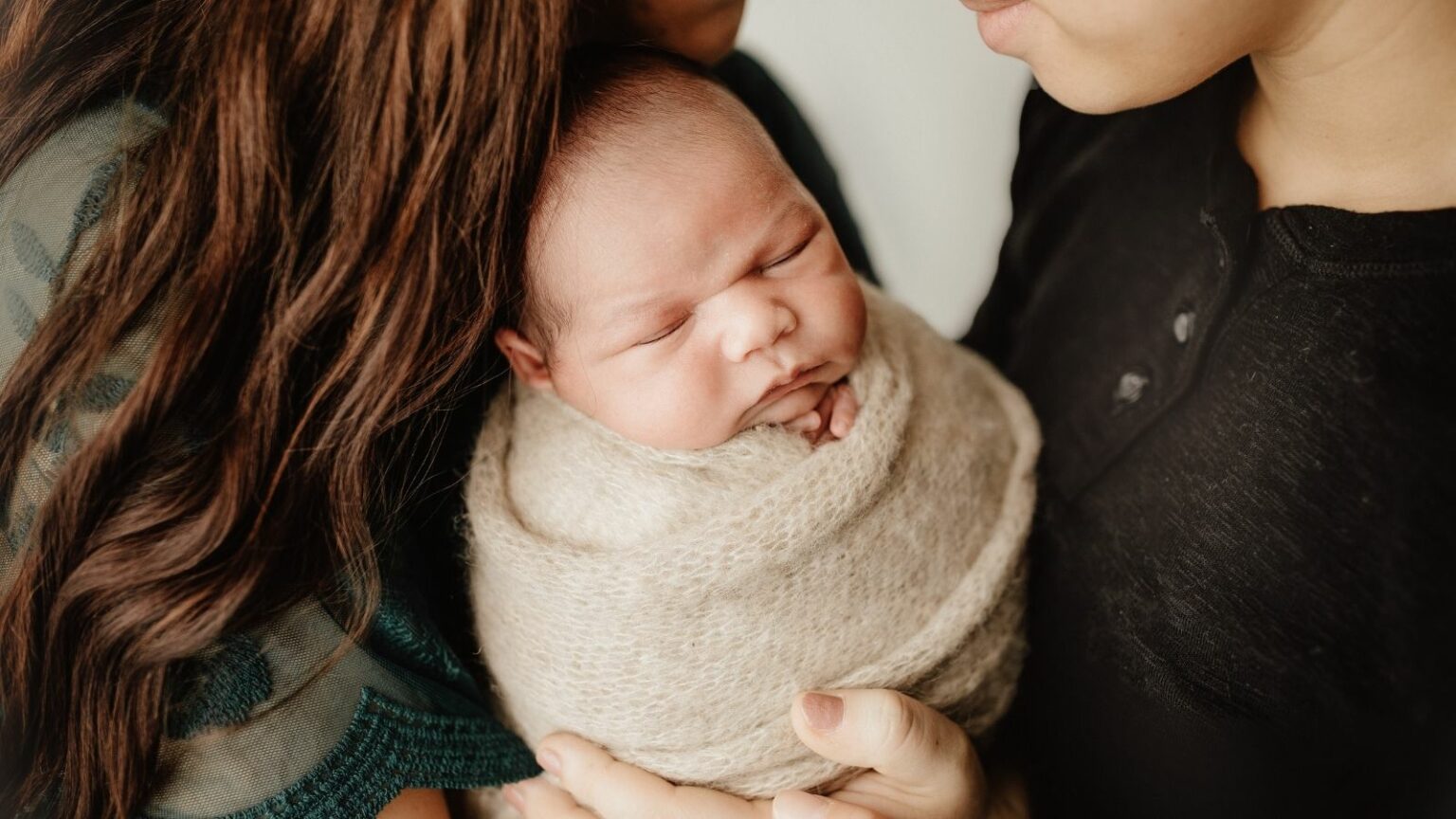
We meet Kalina and Jane, from Bulgaria and the UK respectively. Because their daughter Sara was born in Gibraltar, she cannot claim UK citizenship via Jane, so the couple applied to have her registered in Bulgaria. The Bulgarian authorities refused, therefore leaving Baby Sara stateless.
Kalina and Jane brought a case against the Bulgarian authorities to the EU Court of Justice, which was heard in March 2021. They join us to talk about their current situation, the case, and what it means to their family. We’re also joined by Arpi Avetisyan, Head of Litigation at ILGA-Europe, to talk about the wider implications of the case.
European Court must rule in favour of a child at risk of statelessness and her family’s freedom of movement in the EU, say leading LGBTI rights organisations

Authorities in Bulgaria have not recognised the valid EU birth certificate of the child of a same-sex couple. On February 9, the Court of Justice of the European Union must clarify that if you are a parent in one EU country, you are a parent in every EU country.
On Tuesday, February 9, the Court of Justice of the European Union (CJEU) will hear the case of a same-sex couple who were refused a birth certificate in Bulgaria for their newborn daughter. The authorities claimed that a same-sex couple cannot be registered as parents on the birth certificate. ILGA-Europe have been supporting Bulgarian LGBTI rights organisation, Deytsvie in bringing the case forward and is, through their campaign #parentswithoutborders, raising awareness of the lack of protection of same-sex parents and their children within the EU.
Bulgarian born Kalina Ivanova* and Gibraltar-born Jane Jones* are the mothers of Sara, who was born in Spain in 2019. Under current Spanish law, the child could not acquire Spanish citizenship because neither Kalina or Jane is a Spanish citizen. The child was also denied British citizenship because Jane was born in Gibraltar of British descent, and under the British Nationality Act (1981), cannot transfer citizenship to her daughter.
Therefore, Kalina requested Bulgarian citizenship for their daughter. Bulgarian authorities rejected the application, arguing that a baby cannot have two mothers, and refused to issue a birth certificate in which the parents are two persons of the same sex.
Sara has been deprived of Bulgarian, and therefore European citizenship, and is at risk of statelessness. At the moment, the child has no personal documents and cannot leave Spain, the country of the family’s habitual residence. The lack of documents will restrict Sara’s access to education, healthcare, and social security.
According to the case taken to the CJEU, the Bulgarian authorities are violating the rights of a European citizen on the grounds of sexual orientation, namely to free movement, and to private and family life. This constitutes a breach of the fundamental principles of the EU.
In Bulgaria, same-sex marriages and same-sex registered partnerships are not recognised.
According to Denitsa Lyubenova, attorney-at-law and co-founder of Deytsvie: “Countries in Central and Eastern Europe are derogating from basic human rights guaranteed by the European Convention on Human Rights and the Charter of the Fundamental Rights of the EU. This weakens the EU position as a guardian of human rights. With this case we have the chance to realign the practice in EU countries with the principles set out in the EU Treaties and to protect the rights of LGBTI families and their children moving across Europe. and the Court needs to reconfirm that Rainbow families are as valid as all others.”
Arpi Avestisyan, Head of Litigations at ILGA-Europe added: “In her State of the Union 2020 address, President Ursula von der Leyen said: ‘If you are parent in one country, you are parent in every country’. However, thousands of same-sex parented families in the EU currently live at risk of not having the parental relations recognised and face legal turmoil due to differences in member states’ national systems.”
Avestisyan continued: “Parents cease to exist when moving from one EU member state to another, where birth certificates from another member state are not recognised. These situations create severe obstacles for children in exercising the rights to which they are entitled under European and international law.
“Through this case, the CJEU has the opportunity to clarify that parentage established in one member state must be recognised across the EU, and all EU citizens and their families equally enjoy freedom of movement. As already confirmed in Romanian Coman case, arguments on “constitutional identity”, namely that Bulgaria does not recognise rainbow families, cannot justify a violation of EU law.”
*Names have been changed.
“If You Are Parent in One Country, You Are Parent in Every Country”: But still today a child can be stateless in the EU just because it has two mothers
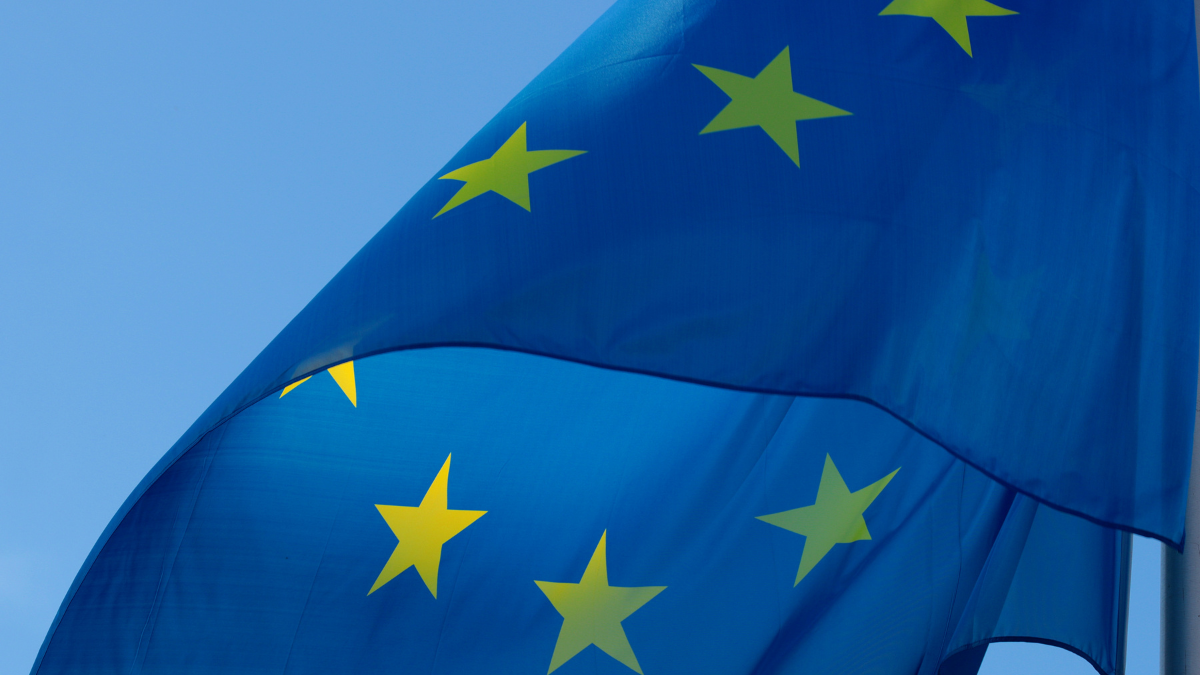
A baby born to two mothers, one from Gibraltar and one from Bulgaria, has become a test case at the European Court of Justice for the freedom of movement of rainbow families in the EU. Read on and find out how to join our campaign for parents without borders!
Born in the EU, Sara is the daughter of a Gibraltar-born mother and a Bulgarian mother. Under EU rules, baby Sara is a Bulgarian citizen. However, Bulgarian authorities do not believe that a child can have two mothers and have denied citizenship to Sara, putting her at risk of statelessness. The Court of Justice of the European Union in Luxembourg will hear Baby Sara’s case on February 9. It is a unique opportunity for the court to take a stand in support of rainbow families and their right to free movement.
“If you are parent in one country, you are parent in every country” said Ursula von der Leyen, President of the European Commission, in her address of the State of the Union in September 2020. However, this is not the reality for many rainbow families, and it has certainly not been the case for baby Sara and her parents so far. Through this case, the Court of Justice of the European Union (CJEU) has the chance to help make President von der Leyen’s words a reality for all families in the EU.
The story of Baby Sara’s family
Kalina* and Jane* got married in 2018 in Gibraltar, Jane’s birthplace. Kalina is from Bulgaria, a member state of the EU. Because it is part of the United Kingdom, since January 1 of this year, Gibraltar has exited the EU.
Baby Sara was born in December 2019 in Spain. Like Bulgaria, Spain is a member state of the EU. Sara’s birth certificate lists Kalina and Jane as her mothers. However, under the national laws of Spain and the UK, Sara could not become a citizen in either country. Not in Spain, because neither of her mothers have Spanish citizenship, and not in the UK, as Jane, who was born of British parentage in Gibraltar, could not transfer British citizenship to Baby Sara, who was born outside the UK.
Therefore, Kalina requested Bulgarian citizenship for their child. Bulgarian authorities rejected the application, arguing that a baby cannot have two mothers, and refused to issue a birth certificate in which the parents are two persons of the same sex. In Bulgaria, same-sex marriages are not allowed. As a result, Sara has no personal identification documents and cannot leave Spain, where the family currently lives.
In the long run, Sara is at risk of statelessness. Without documents, she will not be able to attend school. Kalina lodged a claim against Bulgarian authorities before the Administrative Court of Sofia, which in turn referred four questions to the CJEU asking for clarification. The CJEU will hold a hearing in this case on February 9 by the Grand Chamber, composed of 15 judges.
Why the court should judge in Baby Sara’s favour
“All EU citizens and their families have the right to enjoy freedom of movement,” says Arpi Avetisyan, Head of litigations at ILGA-Europe. “Article 21 of the Treaty on the Functioning of the European Union states that all EU citizens and their family members have the right to move and reside freely within the EU. Through this case, the CJEU has the opportunity to clarify that parentage established in one member state must be recognised across the EU.
“In 2018, the CJEU delivered a judgement on the Coman case, saying that the definition of ‘spouse’ in EU law on freedom of movement includes same-sex couples. Therefore, “arguments on ‘constitutional identity’, namely that Bulgaria does not recognise rainbow families, cannot justify a violation of EU law.”
Severe obstacles for children
Unfortunately, Sara’s situation is not an isolated case. According to Arpi, it is representative of what many rainbow families experience across the EU. “Parents cease to exist when moving from one EU country to another, where birth certificates from another member state are not recognised. These situations create severe obstacles for children in exercising the rights to which they are entitled under European and international law. Among others, the Convention on the Rights of the Child (CRC) is violated, restricting access to education, healthcare, and social security.”
The CJEU must clarify that if you are a parent in one EU country, you are a parent in every EU country. Help make this a reality by joining our #parentswithoutborders campaign!
Share this gif on your social media, with the message:
Authorities in #Bulgaria are not recognising the valid #EU birth cert of the child of a same sex couple. On Feb 9 the CJEU must clarify that if you are a parent in one EU country, you are a parent in every EU country #ParentsWithoutBorders
Click below to instantly tweet this message!
Authorities in #Bulgaria are not recognising the valid #EU birth cert of the child of a same sex…
*Names have been changed